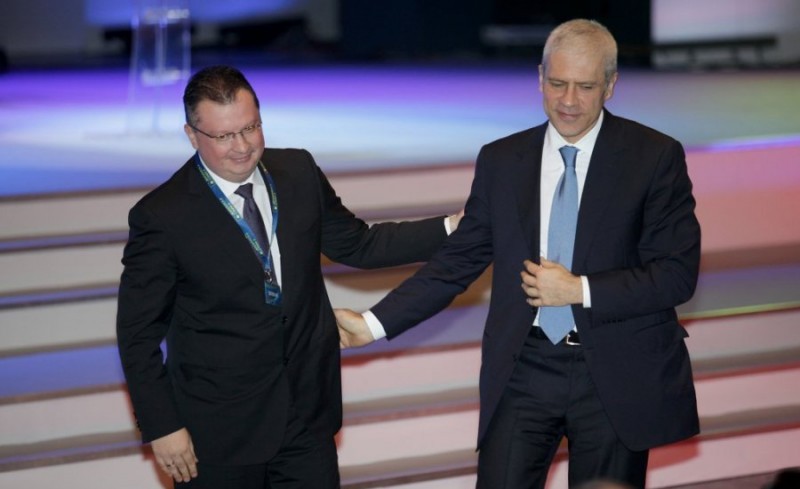
File Šarić
Justice and the media as political instruments
The wars, sanctions and general economic decline during the nineties, followed by the collapse of state institutions and social ethos, have led to the emergence of para-institutional forms of power and the creation of link between organized crime and alienated state structures. Although the predominant part of the public believed that, after the end of the rule of Slobodan Milosevic and his regime, those links would be irreversibly terminated and that the state and organized crime would finally be on opposite sides, the claims of those who have seen Serbia as a country which mafia turned into its own service, rather than as a country which held under its control the organized criminal groups, which by definition, cannot exist without the powerful protection of system institutions, soon proved to be more accurate. The link between the criminal and state structures included the active involvement of the third factor in the form of the media which, in the name and for the account of the various centers of power, instead of giving the real description of reality, as a rule sought to create its virtual surrogate through fabrications of their own make and tendentious interpretations of events. Depending on the interests and will of their masters, the media criminalized the pre-selected people while their financiers, who mostly came from the war-profiteering milieu of the nineties, were represented as honorable citizens and businessmen, although the general public has never been, nor will it be, presented the information about what business have these “business” people actually been involved in, and even less the information concerning to the real origin of their capital.
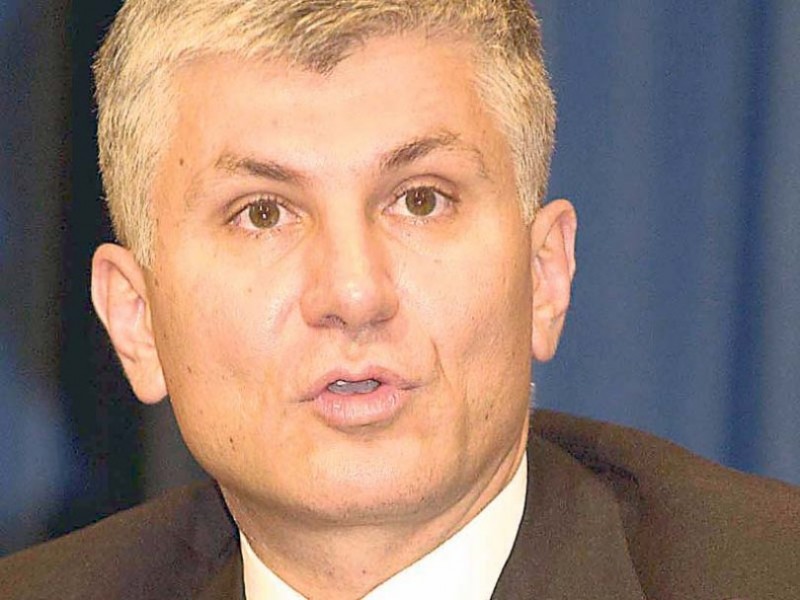
The murder of the first democratically elected Prime Minister Zoran Đinđić showed the true depth of the problems which post-Milosevic epoch Serbia faced. This event, however, was also the trigger for, in the modern history of Serbia, the first decisive state crackdown on growing crime groups in the country. And although, during and after the police operation "Sabre", it seemed that breaking of the "Zemun Clan" and its related group meant that the backbone of organized crime was finally broken, the rapid rise to power of Đinđić's political and ideological opponents again reversed this trend to the direction of re-restoration of Milosevic's legacy which included the rehabilitation of a large number of seriously compromised personnel within the state structures themselves with some serious indications that they were associated with the criminal milieu of the nineties.
The lack of interest of the western part of the international community for the situation in the Western Balkans, region which occurred after the terrorist attacks on 11th September 2001, followed by the diseases inherent to highly corrupt and criminalized societies of the region, have allowed the unfettered reconstruction and even strengthening of the links between the official political and intelligence-security structures and organizations from the criminal milieu. The empty space created by the elimination of the "Zemun Clan" was very soon filled with new players, and the fact that the domestic market of narcotics in that period suffered no serious disturbances was proved by an unprecedented low price of drugs on the streets of Serbian cities. At the same time, the absence of major mutual showdowns of the underground, which were typical for earlier periods, was a clear sign that the organizational principle prevailed over greed urge in the criminal milieu and that the organized crime in power was controlled and very precisely coordinated from very strong centers of power which, by their range and degree of internal organization, overwhelmingly left an impression of the involvement of local secret services in these illegal activities.
In parallel with the development of increasingly powerful organized crime networks, during the rule of the coalition led by Vojislav Koštunica as the new leader of nationalist forces, the state mainly simulated the fight against the members of various possible mafia groups whose theatrical arrests were filling the newspaper columns and prime-time television programs on a daily basis. And while the public was preoccupied with numerous scandals and detections and arrests of the members of the mafia of all kinds (from road construction, through the index, sports, garbage collector to the grave yard), in practice the discourse of false patriotism as a perfect cover for additional empowerment of completely bare links between the civil and criminal structures re-established its domination. The situation further escalated by re-escalation of national issues that occurred after Pristina unilaterally proclaimed independence of Kosovo which pushed Serbia, under Koštunica's rule, into a kind of self-isolation in which, on the internal plan, almost everything was permitted to the governing structures, while in the international level all kinds of illegal activities became not only permissible but desirable.
Cosmetic change of Government in Belgrade in the summer of 2008 took place on the eve of a major financial crisis and the significant outflow of predominantly speculative capital, which had the dominant influence on the growth of national GDP in the previous years. The situation created by an acute shortage of fresh capital in chronically bankrupt economy, was additionally complicated by the fact that most of the privatization process had already been completed and that what was left for sale (except EPS and Telecom) was mainly limited to the unattractive bankrupt state-owned enterprises which had failed to attract interested buyers for years.
In such circumstances, attracting fresh money from all possible sources, whether allowed or illicit, has become imperative and covert part of the official state policy. In order to secure for the new ruling coalition any kind of credibility with international partners, at the very beginning of its work, the new government carried out the transfer of Radovan Karadžić, one of the most wanted fugitives, to the Detention Unit of the Hague Tribunal. With the active assistance and collaboration of the domestic secret services, the new ruling elite in Belgrade sought to buy plenty of time with this move with no pressures and conditioning, but also to provide sufficient space to continue the implementation of the nationalist politics related to the imaginary defense of state sovereignty in Kosovo, undermining the sovereignty of Bosnia and Herzegovina and Montenegro, and putting under control all sources of money the inflow of which was due to the then branched network of increasingly powerful criminal groups which, with the help of logistics and support of the breakaway state structures, had become one of the major suppliers of the western European drug market.
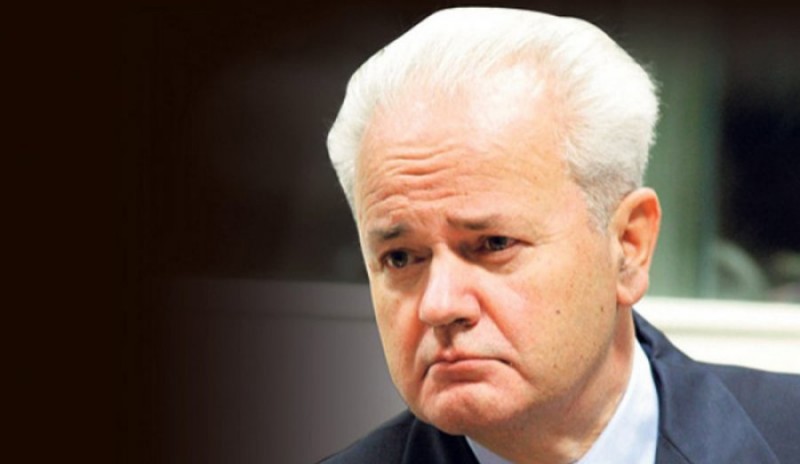
What, however, spoiled the game to the ruling circles in Serbia is the fact that in 2008 the cooperation with the Hague Tribunal was no longer at the top of the priority list to the western part of the international community, especially the United States of America. In the midst of the global war against terrorism, the focus of Western intelligence agencies has shifted to the activities which account for the sources of financing of terrorist organizations worldwide, including the financial flows through which money pours into funds of organizations and individuals who support terrorism. The illegal drug, weapons and white slavery markets, along with the channels for money laundering became the focus of Western intelligence and security agencies in that period.
Due to efforts to fully comply with these priorities, the US Drug Enforcement Administration (DEA) could not miss the huge amounts of cocaine that came to the Western European market from Latin America, in organization and through well-organized groups which turned out to originate from the Balkans. In these circumstances, the pressure on Belgrade authorities to seriously tackle the metastatic corruption in society and organized crime, whose impact was already far beyond regional borders, was intensified. So, one October morning in 2009, the citizens of Serbia learned about the event, which would, in the years to come, become a key litmus test of the political will of the authorities in Belgrade to seriously address the problem of combating organized crime, but also the ability of the Serbian state to establish and facilitate the implementation of the fundamental principles of the rule of law in practice as a precondition for systemic fight against corruption and metastatic criminal scourge.
For now, there is only one semi-official version on how the cooperation between the Serbian Security and Information Agency (BIA) and the American DEA was established in order to locate and seize 2.17 tons of cocaine in Uruguay in October 2009. According to the story told by the circles close to the then government and the ruling structures of the BIA and the Ministry of Internal Affairs, the cooperation was established at the initiative of Belgrade officials who allegedly requested the assistance of the American partners. According to this, quite contradictory version, after the failure in an attempt to seize drugs in Athens, there were suspicions that the action failed due to the leakage of information from the Ministry of Internal Affairs. The operation in Serbia was then taken over by the BIA, whose leaders were trying to find a serious foreign partner who would lead the international part of the operation. According to these allegations, the BIA then contacted the mission of the American DEA in Rome or its Regional Office Director for Europe and Africa, Russell Benson.
According to these allegations, which were impossible to verify before the end of this article, the representatives of the BIA had managed to convince Russell that a group of dealers of international importance was concerned. The DEA then reportedly agreed to cooperate with the Serbian side on condition that, for reasons of secrecy, the operation should be performed only by those two services without the interference of other services from Serbia or third countries. Immediately after the operation of seizure of 2.17 tons of cocaine in Uruguay, the Serbian Prosecutor's Office for Organized Crime was included in the investigation, headed by the Special Prosecutor Miljko Radisavljević and his deputy Saša Ivanić, who was entrusted with the mission to investigate the case of the Balkan drug cartels. For reasons that are discernible, the "independent" prosecutors and BIA operatives required the political mentor in the form of Miodrag Miki Rakić, a coordinator of the security services and the Chief of Cabinet of the then Serbian President Boris Tadić.
What this fairy-tale saga of the method of establishment of cooperation between the US DEA and the Serbian intelligence agency covers with a veil of doubt, is a lack of clarity regarding the reasons for the sudden emergence of BIA needs for international cooperation in breaking up drug cartels of domestic origin, particularly in light of the well-known closure and mistrust of the Serbian secret service when this kind of arrangement is concerned. This kind of doubt is additionally enhanced by the testimony Luigi Rinela, the inspector who led the criminal police of Milan, who confirmed that the investigation in Italy had never came up with the name Darko Šarić. The fact that Šarić was the head of the whole network Luigi heard from colleagues from Slovenia and Serbia, but the Serbian police did not send him firm evidence for that during the investigation. Although the Italian police sent to Serbia all the data it had obtained through its operational work during the investigation, it rarely received back anything from the partners from Serbia. The already low level of cooperation has been further minimized from the moment when in 2009 the BIA undertook to carry out the investigation instead of the police.
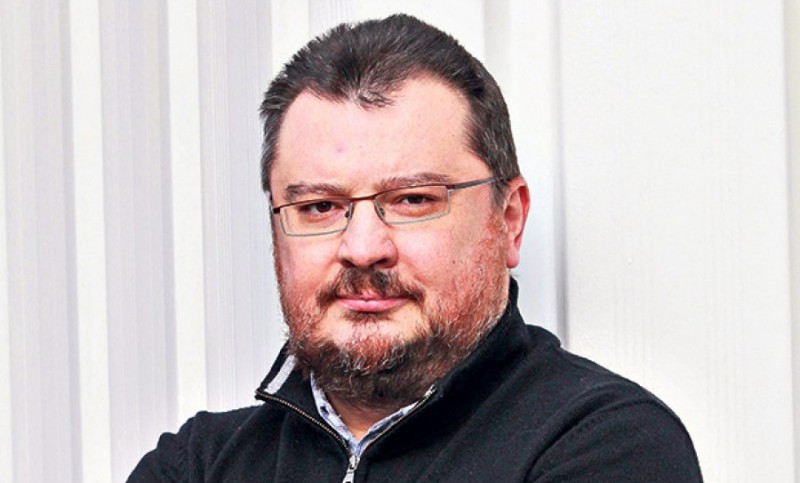
The reasons for the unwillingness of the Serbian services for cooperation with the interested foreign partners, would be disclosed to a greater extent later when the Court of Slovenia, during the trial of the local branch of the Balkan group, explained its acquittal by the inability to consider evidence from Serbia (which included the wiretapped phone conversations) after they were found to have been obtained illegally. It is necessary to add to the above the endeavors of the Serbian prosecution, unexplainable by legal reasons, to provide to the Serbian judiciary the jurisdiction over the trial against Šarić, as the alleged leader of the group which had committed criminal offenses in the territories of third countries, none of which had charged him as an organizer of illegal transportation of cocaine.
Even stranger was the fact that the BIA was mainly focused on the prevention of drug trafficking at that time, which was not even happening in the territory of Serbia and for which its territory did not constitute even a transit point while, at the same time, it failed to take notice of the obvious massive money laundering operation through privatization and suspicious banking and credit transactions in the country. This lack of logic was additionally enhanced by indictments which the Deputy Special Prosecutor Saša Ivanić raised against Darko Šarić, first one for drug trafficking, for which, in the course of the trial, there have been no serious and valid evidence and the prosecution of which, according to some serious legal interpretations and analyses, was not even under the jurisdiction of the Serbian judiciary. At the same time, the indictment for money laundering included the charges for far more modest sum than those speculated in the media, which were often confirmed by officials of the executive authorities and the prosecution. At the same time, they failed to include some important Šarić’s jobs in the country which were brought in connection with some high-ranking officials of the then government, some known tycoons and banks under their direct control.
It is also symptomatic that the investigation, which will be remembered for having had his political mentor, lacked not only the results in an effort to obtain evidence which would bring pre-determined Šarić in connection with the seized cocaine transports, but also the answers to many questions about the political ties between the accused and the then authorities, without whose benevolence towards the arrival of money of suspicious origin, its entry into the domestic financial system practically would not have been possible. The fact to be determined by the investigators themselves is that the cartel members (at least the part that could have been brought in connection with drug trafficking) entered into the large and legitimate businesses across the region, as well as that they represented an important factor in the economy of the Balkan countries. Due to the chronic lack of liquidity and cash shortages in terms of major financial crises, the most important local tycoons and businessmen have simply raced who would work with them, and banks, largely under the control of local tycoons and ruling political structures, enabled the undisturbed money laundering to the owners of dirty money in regular financial transactions. For all the above, those better acquainted with the situation on the domestic political, tycoon and crime scene reasonably suggest that even if the cooperation between the BIA and the US DEA was really established at the initiative of the Serbian side, it was most likely due to the previous diplomatic pressures of Washington and some Western capitals on Belgrade regarding the issue of combating organized crime. Experts warn that, without strong external pressure, it is almost impossible to imagine a decision reached by the Serbian authorities to cope with organized crime which acted in the territories of other countries and for which Serbia only represented the ultimate destination for the placement of illegally obtained money.
These allegations and suspicions are supported by the statements of Serbian services that Šarić was under their surveillance since 2005 for which reason it is not clear why the need to stop him occurred only in 2009 if the stories about his criminal activities were really true? No matter what the real motives behind the initiation of the investigation were, once run case was put by the then authorities under their absolute political control, in order to direct it for years by numerous abuses and suspicious activities, in cooperation with specific interest groups and the media under their control all in accordance with the imperatives of politics which, for the umpteenth time, would again prevail over the principles of the rule of law and the legal state. Interference of the executive authorities in the course of investigation and trial is unacceptable, while the orchestrated media campaign, a great influence of policy and attempts of political instrumentalization of the case would cast a serious shadow over one of the biggest trials in the history of the Serbian judiciary, and hence over the reputation of the Serbian state itself.
Operation “Balkan Warrior”
In the afternoon of the 15th October 2009, rare were those among the citizens of Serbia who were able to even anticipate that at that same time a dramatic operation of seizure of large amounts of cocaine was taking place on the other side of the Atlantic Ocean and that the Serbian Security and Information Agency participated in it. Whether because of the "rules of the service" or for some other reason, but to the moment of the seizure of over two tons of cocaine in Uruguay, the citizens of Serbia had never heard of the name of a man who would, only a couple of days later, become famous as the chief suspect for being the leader of the largest clan in this region responsible for the illegal drug trafficking in, until then, unimaginable quantities.
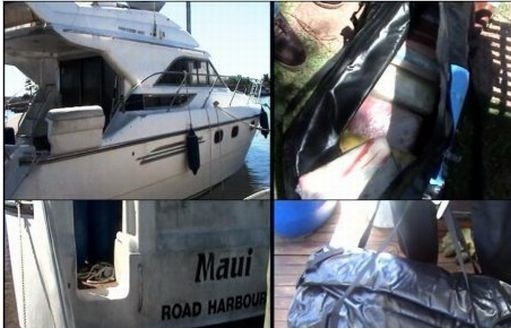
Only 25 kilometers from the Uruguayan capital of Montevideo, in the port of Santa Lucia, on 15th October 2009, the members of the US DEA and special police of Uruguay arrested several people in a moment while they were reloading the enormous amount of drugs. It was later specified that the quantity concerned amounted to two tons and 170 kilograms of cocaine seized at yacht "Maui" which had been bought a couple of months earlier for $ 265,000 by an owner originating from the Balkans. The operation named "Balkan Warrior", in which the Serbian BIA participated, resulted in the on-site arrest of the Croatian seaman Anastazije Martinčić and a Uruguayan citizen who was on the yacht in order to perform accounting tasks and who was later found not to be directly involved in the drug trafficking. On the same day, the local media released an official statement of the Special Prosecutor's Office for Organized Crime and the BIA on the record seizure that had occurred near the capital of Uruguay. Astounded by the quantity of seized drugs, the media in Serbia and the region from that moment began to competing who would first get the exclusive and sensational information about this case, which was used by the prosecution and security structures, under the mentorship control of the Chief of Cabinet of the then President of the Republic, for dosed and skillfully directed the placement of the desired information.
On the same day when the cocaine was seized in Uruguay, three people were arrested in Serbia - Željko Vujanović from Kragujevac, Marko Vorotović from Kotor and Nikola Pavlović from Belgrade. Five days later, on suspicion of being members of the same gang Dejan Dakić, Miloš Pandrc, Radan Adamović, Dragan Labudović and Miloš Krgović were arrested in Kragujevac and in Belgrade. In continuation of the operation "Balkan Warrior", in late November additional 492 kilograms of cocaine were seized in Argentina. The drug was found in a house in the suburb of Buenos Aires, and the police found it in a specially built bunker near the elevator in the building in which the people from Serbia and Montenegro suspected of transferring the cocaine seized a month earlier in Uruguay, had been staying.
While the public was eagerly waiting to see what famous names at the top of the criminal pyramid the investigation would disclose, the Serbian prosecution and security services already had a candidate ready for that role. Reporting on the record seize of cocaine near Montevideo, and referring to the sources close to the National Security Council, Belgrade "Politika" published the information on 17 October 2009 that the investigation would continue towards discovering the organizers of cocaine trafficking, or towards "a Montenegrin citizen who has already been a police suspect as one of the biggest drug traffickers in the region. " [Num] Several times repeated claims of high-ranking officials of the security services of Serbia that the activity Darko Šarić had already been known to them imposed a logical question: how was it possible that someone who had been suspected of drug trafficking for years freely invested his money in the local economy and all that in a regular way through the domestic banking system? The investigation has never provided a satisfactory answer to this and many other dilemmas, whose resolution presents an inevitable part of a complex mosaic of links between the organized crime and political-security structures in this region.
Unlike the "well informed" media, Darko Šarić was officially determined as the prime suspect in this case by the Special Prosecutor's Office for Organized Crime only a few months later, in January 2010, while the first indictment against him was filed in April of the same year. By thematic consolidation of as many as 15 successive indictments, Šarić was ultimately charged in two separate cases: the first for the trafficking of over five tons of drugs seized in Uruguay and several other raids in Argentina, Brazil and Italy, while in the second case he was charged with money laundering in the amount of EUR 22.1 million, which is more than a modest amount compared to the figures on which the media constantly speculated, citing the sources from the investigation. In the second indictment, Šarić was charged for being the leader of a completely different group of people dealing with the placement of "dirty money", which has not been in any contact with the members of the group who were caught smuggling the drugs.
In contrast to the speed and ease with which he was named the "main culprit", the work of collecting the evidence valid in court which was supposed to support the prosecution’s accusations so they could be proven in court appeared to be much more difficult. The charges according to which Šarić was accused of being the head of a group of drug dealers are mostly based on recordings of intercepted conversations and communications between Šarić and other members of the organization. Although the talks, which were presented to the trial chamber, contain no mention of drugs, the prosecution argued before the court that the members of the clan used the codes to discuss the transportation of cocaine, and that the prosecution had cracked the codes used in this communication. Prosecutor Saša Ivanić, based on the contents of the conversation and the circumstances in which they occurred, stated his conclusions about what the participants had reportedly discussed. Aware of the fact that such talks, with the meaning subsequently attributed by the Prosecutor, represent only indirect evidence with small probative force which, apparently, is not enough to convince the Trial Chamber of the indisputable guilt of the suspects, the Prosecution was forced to submit to the Court the testimonies of the group members who, after his arrest, became protected witnesses - Draško Vuković, Radan Adamović and Nebojša Joksović. In addition to the objections stated by the defense in terms of transparency and the questionable legality of the way in which certain individuals were granted the status of protected witness in this process, the majority of them, presented to the Court Council only indirect information that did not seriously incriminate Darko Šarić. Some of them have openly admitted that at the time when the cocaine was smuggled they did not even know of the existence of Darko Šarić and his possible role in the group.
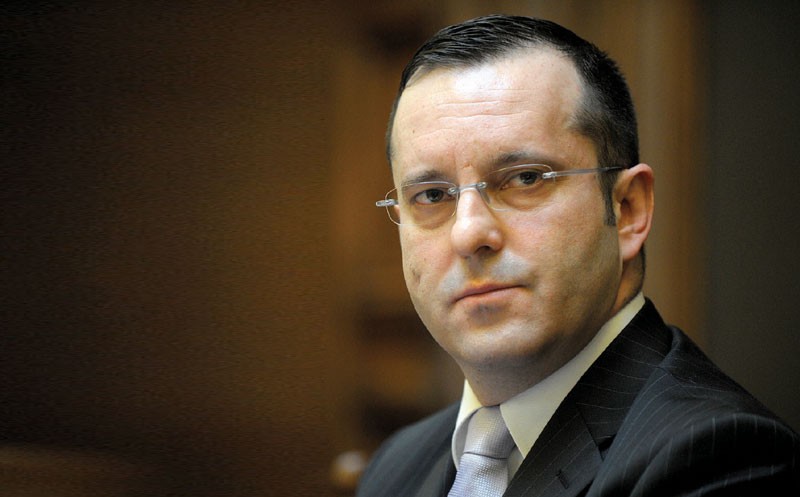
Draško Vuković, One of the key witnesses, who was close to Dragan Dudić Fric in the organization, said that he did not know for sure whether Šarić was involved in the drug organization, but that, to his knowledge, Dudić was the main organizer. Radan Adamović was another person who could not give direct information before the court on the possible role of Darko Šarić in the organization of procurement and transportation of seized shipments of cocaine, but he spoke only of indirect knowledge available to him. Even Nebojša Joksović, who testified before the court on his knowledge regarding the relationship between the cocaine seized in Italy and the accused Šarić, only stated what he allegedly heard from Šarić himself, which clearly shows that the Trial Chamber did not have an opportunity hear direct knowledge from cooperating witnesses. What has further reduced the already not very great importance of this evidence, are serious indications that the status of a cooperating witness was bought by the Prosecution by donating huge asset to these persons which seriously calls into question their credibility and compromises the whole process conducted before the Special Court in Belgrade.
Due to the absence of documents which would confirm that the key evidence in the form of intercepted conversations had been collected in accordance with legal procedures, Darko Šarić's attorneys-at-law filed a request that they should be excluded from evidence. On 12 May 2014, they filed a complaint to the Constitutional Court of Serbia which has not been decided upon up to this point. After more than four years in hiding, on 18th March 2014 Darko Šarić voluntarily surrendered to the Serbian state authorities.
Since the beginning of the operation "Balkan Warrior", the investigation under the political supervision of Miodrag Miki Rakić, a man of confidence of the then President of the Republic, was conducted with the sole aim to prove, at any cost, the guilt of pre-determined Šarić, but also his relationship with the authorities in Montenegro which was the objective of utmost political importance for the then President of Serbia and the people in his immediate environment. At the same time the investigation was being conducted in such a way so that possible Šarić’s business ties with the Serbian political and tycoon establishment could never be revealed, and in order to achieve these objectives, an intense media campaign was conducted dominated by the statements of high officials of the executive authorities, the Prosecutor's Office and the police which were regularly supported by sensational information that originated from anonymous sources of investigation. In conjunction of the executive authorities, the Prosecutor's Office, the police and the judiciary, the special role was played by the media which, guided by the sensationalist impulses, served as a perfect instrument in an effort to politically instrumentalize and exploit the "Case Šarić" in order to criminalize politically unsuitable authorities in Montenegro, while at the same time creating the image of the then government in Belgrade as unwavering fighters against crime. Orchestrated and, at moments, brutal media campaign was aimed to cover the deficit of the evidence faced by the Special Prosecutor during the investigation and the trial itself while exercising his political task.
Political instrumentalization of investigation
Drawn by the quantity of seized drugs, but even more by dramatic statements of representatives of the prosecution and the police, since the first day of reporting on the “Case Šarić” the media had almost entirely subordinated the standards and codes of journalistic profession to the imperatives of sensationalism and serving the interests of their financiers who were at that time mostly under control of the cabinet of the then president of the country as a key center of political power in the country. The uncritical glorification of some, even apparently illegal, actions taken by the prosecution and the executive authorities, demonization of the first suspect, the atmosphere of lynch accompanied by disruption of the presumption of innocence and the fundamental postulates of the rule of law, became almost a standard part of the media landscape of Serbia. The objective of this well-orchestrated campaign was to convince the domestic and international public of the commitment of the authorities in Belgrade to fight against organized crime, but also to create such a climate in the public by raising media dust in which the assumed guilt, which is yet to be proved by the court, would become unquestionable and all potential critics of unprofessional work of investigative bodies and the behavior of the executive authorities would in advance be branded as collaborators of crime. The opposition media in Montenegro were also a part of this same mechanism, which, generously financed from Serbia at that time, represented a key instrument for showdown of the official Belgrade with the inappropriate government in Podgorica.
Even a cursory observation of the general environment which accompanied the investigation and trial of Darko Šarić, clearly shows a mechanism that reveals a link between the cabinet of the former Serbian President Boris TadiĆ, as a political mentor of investigation, the ministries of power, prosecution, police and security services through which the range and the ultimate scope of the investigation were controlled. A special role in the mechanism was given to the media whose reporting was aimed to provide a climate in the public in which, despite the lack of evidence, the guilt of Šarić would become assumed and unquestionable, in which it would be impossible to find a judge who would dare to give a judgment contrary to the expectations of the public and where the investigation of the political background of the Balkan cartel would be completely dislocated from Serbia and focused on politically precisely selected targets.
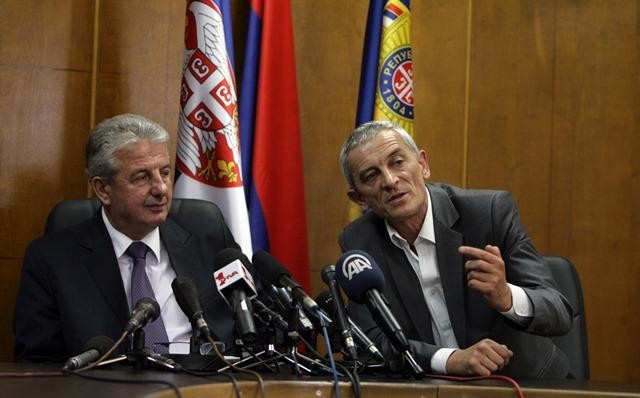
Confiscation and divestiture of suspects’ property, all that at a time when they had not yet been legally convicted, were followed by cheering of the media and were supported in the statements of officials of the executive authorities as a reasonable measure regardless of its essential inconsistence with the legal principles and rules applicable in civilized legal systems. Nevertheless, the views of the other side, the defense and the accused, had been provided hardly any space in the media, for which reason the general public remained deprived of information about serious, legitimate objections of the defense, which ultimately threaten to turn the “Case Šarić”, from the greatest trial for cocaine trafficking and money laundering into a huge judicial shame of the country of Serbia and the best proof of the practical collapse of the concept of the rule of law in the candidate country for EU membership.
The scope and quality of media coverage given to the “Case Šarić” in the first year since the launch of the "Balkan Warrior" operation, as well as the statements of high-ranking government officials who impermissibly interfered in the work of the investigative and judicial authorities, are described in the study on the basis of which Šarić’s lawyers filed a lawsuit against the state of Serbia in September 2010. The law suit signed by then-Saric's defense attorney Zdenko Tomanović, says that according to the statements of President Boris Tadić, ministers Snežana Malović and Ivica Dačić and the Secretary of State Slobodan Homen, his client was pronounced guilty before the beginning of the trial. The complaint states that the legal team had managed until that time to record a total of 70 statements of representatives of state bodies and over 336 newspaper articles in which Darko Šarić, before the trial and before presenting at least one evidence, had already been found guilty. The media regularly labeled him as a threat to the security of Serbia, the drug mafia boss, the boss of organized trafficking of drugs and the man responsible for many of liquidations, although never formally charged with any single murder. Lawyers noted that such qualifications should never be given by state officials and people in high positions, but only by the court as the only place where it can be determined whether someone is guilty or not. [Num]
According to another analysis of the Serbian media coverage of the Law on Confiscation of Proceeds from Crime, which in June 2011 was done under the auspices of the Council of Europe and the European Commission Office in Belgrade, it is stated that in reporting on the seizure of assets in the case Šarić, the media often used illicitly colloquial vocabulary and qualifications. In the analysis, which included reporting of 11 daily newspapers, four weeklies and six television stations with national coverage, it was pointed out that most of the observed media "have never expressed doubts about the guilt of the accused person about whom they report, although for most of them there is no final judgment." Extremely few texts provide a chance to read the opinion the other side, i.e. the statement of the lawyers of the accused, while the rhetoric of government officials of competent institutions is very sharp, and leaves no space in their statements of possibility that defendants have not committed a criminal offense they are charged with. According to these findings such intolerable way of communication was largely followed by the media, who called the persons who had not been convicted of the offense they were charged with as "drug bosses", "kings of cocaine" and "drug dealers". [Num]
As Belgrade "Politika" in its report published on 17th October 2009 indicated that the government already had a candidate for the prime suspect, in the same way the greeting of the President Boris Tadić to security services regarding the sequestration of cocaine in Uruguay gave a clear indication of the direction which his political mentorship of the investigation would take. "This is a concrete example of how Serbia substantially contributes to international security, and Serbia is the only country in the region that has the capacity to participate in such operations," Tadić wrote in a statement that paid tribute to the BIA on a job well done. [Num] To emphasize the belief that Serbia “only in the region has the capacity" to combat organized crime was not just a courtesy background of the press release, but a clear political message which would shortly afterwards be shown in the statements of numerous representatives of executive powers, but also the media campaign which would accompany those statements.
This campaign provides a clearly visible form which revealed the congruence between the statements of government officials and the information which allegedly came from secret sources of investigation whose findings filled newspaper columns, but not the indictment itself. Political mentorship of the investigation and the invisible joint editorial hand of the media have repeatedly tried, on the one hand, to present Serbia and its former leadership as honest fighters against organized crime and corruption, while on the other hand it was necessary to create the impression that the unfit government in Podgorica closely cooperated with the organized crime, which was deeply resented by the official Belgrade from the moment when it managed to win the battle for independence of Montenegro. Intolerance between Belgrade and Podgorica was additionally enhanced in the autumn of 2008, when the Montenegrin government recognized the independence of Kosovo, which is why Tadić’s Foreign Minister Vuk Jeremić expelled the then Montenegrin Ambassador Anka Vojvodić from Serbia. Implementation of the political agenda of the Cabinet of Boris Tadić, who was forced to the investigators in the case "Balkan Warrior" has been aided by some minor conditions such as the unscrupulous personal and careerist ambitions of senior officials of the police and the prosecution, but also friendly relations of Milo Đukanović with some people from Serbia who had already been targeted by corrupt individuals and groups from the Serbian police and prosecutors.
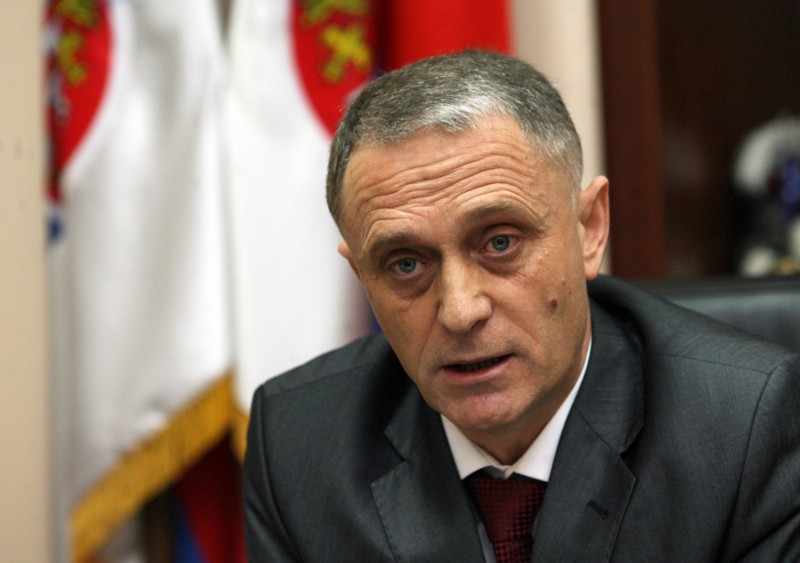
The direction which the investigation in Serbia would take became visible already in the first articles which revealed the details of the operation "Balkan Warrior". As soon as Darko Sarić was named in the media as the person who is "most likely located at the top of the cartel pyramid", he was immediately declared Montenegrin businessman from Pljevlja although, at that time, he was a Serbian citizen residing at Tatarsko brdo near Novi Sad. Only in the period that followed would the real meaning of Tadić's twisted message become clear as well as blatantly used prefix "Montenegrin" as the key determinant for Darko Sarić.
Aiming also at Montenegro, the Serbian Director of Police Milorad Veljović said in an interview for the New Year's edition of "Blic" dated 31st December 2009 that "no country in the region must be a haven of any criminal or a single interest group." [Num] Already in January, the occasion of the announcement of warrants for Darko Šarić by the Serbian Prosecutor's Office, which was published on 21st January 2010, was followed by a media barrage dominated this time by the opposition Montenegrin media which spared no words in the accusations against local authorities . Thus, the opposition media in Podgorica, daily newspaper "Vijesti" released information on 22nd January that Darko Šarić and Goran Soković avoided arrest in Vienna thanks to a tip from the top of the Montenegrin authorities. On the same day, relying on their own resources, the same information was published by Belgrade "Blic" in an article by the journalist Tamara Marković Subota, who was also the author of the aforementioned interview with the director of Serbian police Milorad Veljović. In this text, Šarić was already qualified as the leader of the largest drug-clan in the Balkans, although, at that point, not even charges had yet been built against him. [Num] It is symptomatic that from the beginning of the operation "Balkan Warrior", when the publishing of unverified and tendentious information followed by the violation of the presumption of innocence, dailies Blic, Večernje novosti, Politika, Press and Kurir, weeklies Vreme, Novi magazin and NIN, Belgrade television B92, markedly opposition-minded dailies in Podgorica Dan and Vijesti (including the eponymous television), as well as the weekly tabloid Monitor had the leading role. The journalists of Blic Tamara Marković Subota and Vuk Z. Cvijić particularly stood out in this work, and were later joined by Stevan Dojčinović from the Belgrade Centre for Investigative Journalism (CINS) and Miranda Petrućić from Sarajevo OCCRP. Even after the change of government in Belgrade, which politically sponsored the biased writing about "Case Šarić" they uncritically continued their long-ago started work, with an aim to, for the sake of vested interests of their principals, affirm the activities of the Prosecution and disavow the authorities in Montenegro.
Keeping silent about the fact that up to that point there had been no official request for Šarić’s arrest from Serbia, on 23rd January Podgorica's "Vijesti" reported on the front page that Serbian police believed that Šarić was in Montenegro, but that the local authorities had no intention to do anything about it. The additional arcing between Belgrade and Podgorica occurred in February when the Montenegrin police, at the request of Serbia, first detained and then released Goran Soković and Dejan Šekularac. Having received a request for their extradition from Serbia, the Montenegrin authorities were subsequently asked to agree to delayed delivery of requested evidence from Serbia in order to first keep the arrested in custody, and then to extradite them to Serbia. They were released after the State Prosecutor’s Office assessed that there were no grounds for initiating criminal proceedings against the two detained persons in Montenegro since Serbia had refused to submit evidence against them "until the proceedings instituted after the police operation “Balkan Warrior” has been concluded". Such a decision of the Montenegrin authorities was followed by a fierce reaction from Belgrade. Among the first to react was the Serbian Minister of Justice Snežana Malović, who on 10th February 2010 said she was surprised by the decision of the State Prosecutor’s Office of Montenegro not to accept the request of the Serbian Prosecutor’s Office for Organized Crime to delay delivery of data and evidence in the case Sokovic and Šekularac. She referred to the bilateral and international commitment of the Montenegrin authorities to act upon requests from Serbia, although it was more than clear even then that Montenegro was not obliged to automatically meet the requests received from Belgrade, especially those which were not supported by appropriate evidence. [Num]
At the same frequency was the statement of the Serbian Minister of Police Ivica Dačić, who said on this occasion that "the behavior of the Montenegrin authorities was not in the spirit of concluded regional cooperation" and that Serbia would continue to request the arrest and extradition of Sokovic and Šekularac. Special Prosecutor for Organized Crime Miljko Radisavljević told the newspaper "Press" on 11th February 2010 that the submission of evidence, at that stage of the investigation, to the Prosecutor’s Office of Montenegro against Sokovic and Šekularac "could seriously jeopardize the investigation against Šarić conducted in Serbia." He explained that the request of the Prosecutor’s Office of Montenegro "has not been rejected, but postponed". This, however, in accordance with current international practice, could mean only one thing: that the Montenegrin authorities did not have a proper legal basis for the detention of the arrested. Despite the indisputable fact that the Montenegrin authorities have acted entirely in accordance with the applicable rules of international cooperation in criminal matters, the criticisms that have been made at the expense of Podgorica became, in spite of the actual facts, the standard widely used form of manipulation and accusations against the Montenegrin authorities and their alleged unwillingness to cooperate with the Serbian authorities in the fight against organized crime. [Num]
In response to increasingly fierce criticisms from Serbia, Prime Minister of Montenegro Milo Đukanović said on 9th February in an interview for Belgrade's television B92 that by premature media announcements of investigations against fugitive Darko Šarić, the prime suspect for smuggling more than two tons of cocaine from Uruguay, the Serbian state authorities practically gave him a signal to hide. On this occasion he pointed to a little-known fact that the Montenegrin authorities had last received information about the investigation against Šarić, which had virtually tied their hands in an attempt to his arrest. On this occasion he emphasized the key problem which the Serbian public would be able to see only four years later, and which was reflected in the substantial absence of evidence to charge Šarić with the involvement in the trafficking of cocaine, which was seized in Uruguay and Argentina: "We knew, I am afraid, something more than what was known to the Serbian police, because we have a fair exchange with many agencies in the world, including the CIA and the DEA, which have only in the last few months of last year visited Montenegro on a couple of occasions. Therefore, we have a very precise insight into the quality of suspicions made in relation to Šarić and the others. The doubts are, let’s say, one quality. However, we know very well that we cannot convict people on the basis of doubts, with no arguments. And especially, we cannot deny them their basic civil rights. The only sin of Montenegro at the time was that its authorities refused to act on political, legally unfounded accusations and demands from Belgrade”.
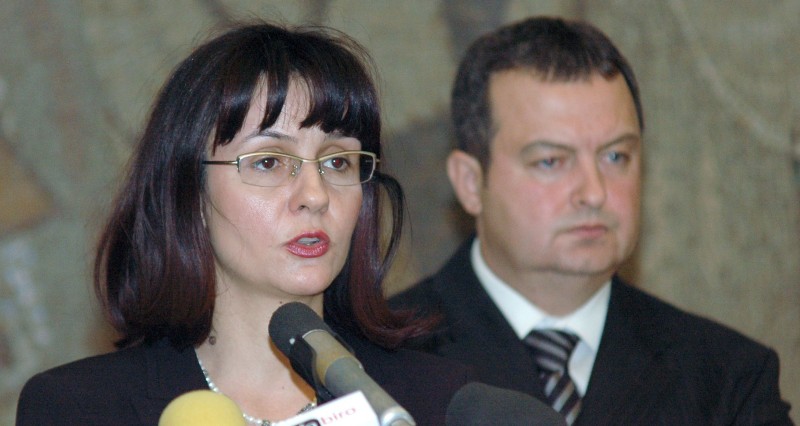
Shooting a new wave of poisoned darts and accusations against Montenegro, Serbian President Boris Tadić said on 14th February that Serbia would continue the fight against organized crime, adding that he also "expected the other countries in the region would do the same." On this occasion he said that "it is indicative that there is no reaction to the fact that all countries in the region are not equally committed to the fight against organized crime" and threatened to bring up the issue in talks with counterparts from the international community "because it is a very important matter for the region and for the EU." [Num]
In these positions Boris Tadić got almost unreserved support of the Serbian media. Thus, the author of a weekly magazine "Vreme" Milos Vasić, in his article “True picture of Darko Sarić" dated 18th February 2010 literally wrote: "Everyone knows that Montenegro became a safe house for a whole range of criminals who have committed their crimes, even the most serious ones, in Serbia. Naturally, our authorities have lost their patience, especially considering the fact that the large-scale planetary operation against the corporation that has a huge money is concerned; such operations are not endangered by sharing sensitive information with a notoriously unreliable administration such as this one in Podgorica. " [Num]
The saga continued on 25th February, again in the weekly "Vreme", which published an interview with Boris Tadić in which he, in an answer to the question of regional cooperation in the fight against organized crime, again accused Montenegro for being uncooperative. "What appears to be the most important question is - are all countries in the region involved in the fight against organized crime with the same intensity? My opinion is that this is not the case, but I hope that things will improve in the future. It is an international obligation of all and that is, in the end, the assumption that we are all together in the European Union, "said the then president of Serbia, and added:" We do not have the same level or reform in public administration and construction of industrial facilities, it is not the same level of reforms in establishing the rule of law. And let me and say this - we do not have the same success in the fight against corruption and organized crime. Serbia is certainly the leading country in the fight against organized crime in the region. "[Num]
Over the next few months the media releases and public appearance of high government officials of Serbia were dominated by the accusations against the government in Podgorica for their failure to arrest Darko Šarić who, as the Serbian authorities insisted, was hiding in the territory of the neighboring country, but also for the positive response which the Montenegrin police gave regarding Šarić’s request for citizenship of Montenegro. After Serbia had officially announced an arrest warrant for Šarić on 21st January 2010, the Montenegrin Ministry of Internal Affairs undertook serches of multiple facilities where the suspect Šarić could be located. Due to the fact that he was not found in those operations, the police of Montenegro announced that, according to their operative information, he had left the territory of that country immediately before the announcement of the arrest warrant from Belgrade. The Director of the Police Administration of Montenegro, Veselin Veljović, said for Podgorica daily newspaper “Dan” that Darko Šarić, who was on the run because the Serbian government announced an arrest warrant against him for suspicion of organizing the smuggling of cocaine from Uruguay, was in some of the European countries. The Minister of Internal Affairs of Montenegro, Ivan Brajović, said on this occasion that he did not want to deal with speculations where Darko Šarić was located and added that he would be arrested if he was in Montenegro.
The response from Belgrade came already on 1st February contained in the pages of, close to the authorities, the daily newspaper “Blic”, which published an article entitled “Montenegrin Ministry of Internal Affairs tried to protect Šarić”, which stated accusations against the official Podgorica for the guarantee which the Ministry of Internal Affairs of Montenegro granted to Šarić regarding his application for citizenship of that country. The accusations addressed against the Montenegrin authorities were not diminished by the fact that Šarić received the guarantee from the Ministry of Internal Affairs of Montenegro, signed by the Deputy Minister Osman Subašić, on 16th November 2009, more than two months before Serbia issued an international arrest warrant. Ten days later, an article was published in “Večernje novosti” entitled “Đukanović: He’s ours with no barriers” which in an extremely malicious way interpreted the statement of the Prime Minister of Montenegro regarding the case of Šarić’s citizenship.
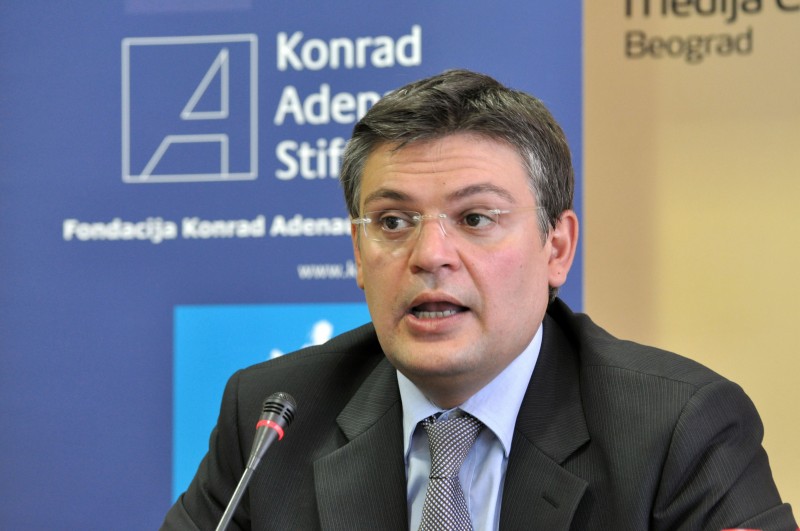
On the same day, 10th February, a pro-government tabloid "Kurir", under a malicious headline "Partners" published a mini interview with Nebojša Medojević, leader of the Montenegrin opposition party Movement for Changes, who claimed that Darko Šarić " is safe in Montenegro because it is in the interest of Milo Đukanović and the top of the Montenegrin authorities to protect their most important friend and partner!” "The Montenegrin authorities are hiding Šarić! He has been there for a long time. He had all the information from the Serbian police and the Government that an operation against him was being prepared, and he has long held parts of the security of Serbia and Montenegro on the payroll,” said Medojević on that occasion, who had the status of a favorite interlocutor of the Serbian media in those days.
A new statement of Medojević followed on the very next day, on 11th February, when the newspaper "Blic" presented a new series of accusations against the Montenegrin authorities. In an article under the headline "Medojević: Đukanovic applogized to Šarić" the leader of the opposition party Movement for Changes, said that "there is no doubt that Darko Šarić is in Montenegro" and that "he already has a Montenegrin passport." "To my knowledge, he is currently on the coast, under the protection of one of the Montenegrin bosses, and his security includes several agents of National Security Agency," said Medojević for "Blic". [Num]
Uncritically forcing the ungrounded insinuations about Šarić’s hiding in Montenegro, on 12th February "Blic" published an article by Vuk Z. Cvijić under the headline "The US DEA located Šarić in Bijelo Polje." Citing the anonymous sources from "international investigation" Cvijić stated that the US services located Šarić in Bijelo Polje, thus trying to strengthen the accusations stated by the authorities in Belgrade that the Montenegrin institutions were hiding Šarić. "The search operation in Bijelo Polje and the search of the hotel 'Bela rada' have been conducted upon the order from abroad, which the Montenegrin authorities did not dare to refuse, and had to take action upon their order. Whether, in the meantime, Šarić had changed the location and found refuge in a place other than Bijelo Polje, is not known, but the international services believe that he did not leave Montenegro and that he still enjoyed the protection of the most powerful men of the underworld " said Cvijić. The text included the declaration made by Nebojša Medojević who repeated the earlier allegations that Šarić was on the Montenegrin coast. On this occasion he said that in Montenegro "there are five drug bosses" and those are "Brano Mićunović, Milo and Aco Đukanović, Stanko Subotic and Darko Šarić". Andrija Mandić, leader of the New Serbian Democracy, was also given an opportunity to present groundless accusations against the Montenegrin Prime Minister when he stated that for Milo Đukanović it is of "vital interest that Šarić and his accomplices remain free for fear of their possible appearance and testimony before the court" .
The same article published a statement given by Slobodan Homen, State Secretary of the Ministry of Justice of Serbia, who said that although each country has the discretion to grant or to refuse citizenship, "the actions of the competent authorities in Montenegro cast doubt as to their willingness to cooperate in the investigation of cocaine trafficking." Surely, the granting of Montenegrin citizenship would give to Šarić the protection from extradition. It is not at all disputable that Montenegro can grant citizenship to everyone, provided that person was not charged for any offense, especially for something so serious, where there is a large international interest, "said Homen. Rejecting any notion that Šarić could possibly be tried in another country for charges raised in Serbia, the Minister of the Internal Affairs, Ivica Dačić, warned Montenegrin government authorities that possible granting of citizenship to Darko Šarić would be a "clear sign for this investigation." [Num]
In a statement given to the tabloid "Press" on 16th February, the Special Prosecutor for Organized Crime Miljko Radisavljević said that "the information reveals that the accused drug-baron Darko Šarić is located in Montenegro." "According to some very serious estimates, it would be the easiest for Šarić to hide in Montenegro at this time, so that this possibility could never be excluded," said Radisavljević on this occasion. [Num]
These claims of the Serbian Special Prosecutor for Organized Crime were subject to the response of Dejan Đurović, Head of the National Central Bureau of Interpol in Podgorica, who in an interview for Podgorica magazine “Pobjeda” stated that Serbia, if they had wanted, could have arrested Darko Šarić, suspected of cocaine trafficking from Latin America, two months earlier. “They should have only issued an arrest warrant at the moment when his arrest in France on 17th December last year failed. The answers to the question why they failed to act so should be sought in Serbia, not in Montenegro”, as Đurović pointed to the illogical criticism which came from Belgrade. He explained that it was strange that Belgrade even then, when Šarić escaped and boarded the plane of “Montenegro Airlines” for Podgorica, failed to submit the international arrest warrant to Podgorica. "In that case it would be impossible for Šarić to avoid arrest in Podgorica. Instead, the international arrest warrant was issued only on 21st January this year”, said Đurović. As another evidence that Montenegro fully cooperated with Serbia in the fight against organized Crime, Đurović confirmed the information which two days earlier, on 14th February, as a guest in the TV show “Utisak nedelje” on television B92, had said Miloš Oparnica when talking about the data on Šarić which had been duly submitted from Montenegro to Serbia a few years before, within the scope of operational cooperation. Slobodan Homen, State Secretary of the Serbian Ministry of Justice, was also a guest in the same TV show, and he used the opportunity to openly say that the Serbian investigative bodies have no confidence in the Montenegrin institutions, for which reason, in the case of arrest of Soković and Šekularac, they refused to submit evidence from the preliminary investigation against the Šarić’s group.
Responding to the increasingly frequent and unscrupulous accusations from Serbia, in an interview for television IN, the Montenegrin Prime Minister Milo Đukanović rejected accusations from Belgrade that Montenegro insufficiently cooperated in the fight against organized crime, saying that he would believe in those messages more if Serbia had not granted citizenship to persons who had been accused of war crimes in Montenegro and convicted for serious crimes. "More will we believe in these calls from Belgrade to combat organized crime, if there was less of a current practice, which is that Serbia grants citizenship to people who were sentenced to 20 years imprisonment for the most serious crimes", he said pointing to the double standards and hypocritical behavior of Serbian authorities towards Montenegro. His objection was related to the case of five suspects of war crimes against civilians (Boško Bojović, Milisav Marković, Radoje Radunović, Duško Bakrač and Milorad Ivanović), as well as the two convicts for murder (Veselin Vukotić and Žarko Laušević), who avoided trial or imprisonment by being granted Serbian citizenship overnight. Đukanović warned that it was a political abuse and repeated that the issue was attempted to be imposed as a mortgage over Montenegro with a political purpose - to stop it in its journey towards European and Euro-Atlantic objectives.
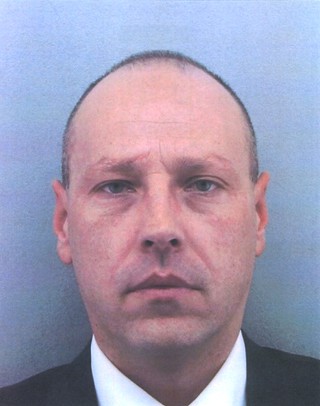
New attacks aimed at the Montenegrin authorities concerning the "Case Šarić" came in the form of the article by Tamara Marković Subota published in the newspaper "Blic" on 23rd February. Referring, by an established pattern, to anonymous sources from the investigation and the Serbian Ministry of Internal Affairs, Marković Subota, in her article "Šarić is hiding in Montenegro", again challenged the statements of the Montenegrin police that the suspect wanted by the Interpol was not in the territory of that country. "The Serbian police still believe that Darko Šarić, suspected of being an organizer of smuggling 2.7 tons of cocaine from South America, has been hiding in Montenegro all the time. Prior to the issuance of the arrest warrant, Šarić freely moved around Europe. His stays in Switzerland, France, Germany... have been recorded. We have been constantly exchanging information with all these countries since the moment when the arrest warrant was issued for him and for now we have not received any reliable information that he is hiding in one of these states. The safest place for Šarić is certainly Montenegro," was the statement given by an unnamed police source. Upon instructions from her sources Marković Subota sent public instructions to the Montenegrin police about the way in which Montenegro could prove their claims. "If Darko Šarić had left Montenegro after the announcement of arrest warrants, the local police would have no problem to indicate when he left the country, at which border crossing and with which passport. The publication of these data would be a proof that he left the country and might well determine his further movements," wrote the journalist close to Milorad Veljović, Director of the Serbian police and Rodoljub Milović, Chief of the Criminal Police Directorate (UKP).
Aware of the fact that the top of the Serbian police stood behind the writing of the journalist of "Blic", the Police Directorate from Montenegro submitted on 24th February, an official press release in which they responded to the allegations presented. "Darko Šaric, who is suspected in Serbia for cocaine trafficking, had left the territory of Montenegro illegally, a few days before the Montenegrin Bureau of Interpol was submitted an international arrest warrant. It should be noted that when he left our territory, Šarić was not wanted at the international level or on any basis”, reads the statement. The Montenegrin police at the same time revealed the information that only ten days prior to the announcement of the international Interpol arrest warrant Šarić stayed in Pljevlja. At this point, however, the Montenegrin police did not have the request filed by the security services of the neighboring countries to arrest Šarić, which is why he was not arrested on that occasion.
A day earlier, on 23rd February, the President of the Parliament of Montenegro Ranko Krivokapić warned in an interview for the Radio Montenegro that Serbia was trying to export the problem of drug cartels to a neighboring country, as well as that the Serbian Minister of Justice Snežana Malović impermissibly connected the Montenegrin political elite with organized crime. Inviting the Montenegrin Minister of Justice Miraš Radović to cancel the planned meeting with the Serbian counterpart in Belgrade, Krivokapić pointed out that it was Serbia not Montenegro who was a "homeland of crime and the seat of an octopus, whose only one arm came to Montenegro." "Montenegro has never said that Serbia is a hotbed of crime, although it created one of the largest clans in the Balkans. It is obvious that the seat of the Šarić Clan is in Serbia, that his property was registered there, that it has been going on for a long time. Serbia is the head, the source and the home of this crime, because Šarić is a Serbian citizen, and now they want to transfer the problem to Montenegro, which has the problem in one arm and we will resolve it in that section" said Krivokapic on this occasion.
Despite the appeal of the President of the Montenegrin Assembly, the Meeting of Ministers of Justice of the two countries, was held on 25th February in Belgrade, but without any tangible results. Although the meeting lacked harsh words and accusations, the joint statement, however noted that both sides "have advocated for the improvement of judicial cooperation between the two countries, and that the problems in the provision of mutual legal assistance in the case of 'Balkan Warrior' should be overcome through more efficient communication between the state prosecutor’s organizations. " At the same time a meeting between special prosecutors of the two countries was agreed to be held soon. However, the very lack of accusations against Montenegro during this meeting, despite earlier announcements of the Serbian Minister of Justice Snežana Malović, was a clear indication that Serbian arguments used in the past few months to accuse the neighboring country for the lack of cooperation, were not sustainable in legal terms. [Num] On 26th February, Belgrade "Blic" "welcomed" the meeting in an editorial "The hostages of mafia" in which the Montenegrin authorities were again accused for waging the propaganda war against Serbia due to their alleged criminal objectives and ties to the organized crime, which was in complete discrepancy with the real state of things on the site where the campaign was more than notable, but from a completely opposite side - the one that was initiated from Belgrade. [Num]
In the next few days, the propaganda war against Montenegro introduced the practice of a new mechanism, applied never before. Unlike the former brutal attacks against the Government of Montenegro, which, in a synchronized manner, included the participation of the state officials from Serbia, Serbian media as well as the media and representatives of the opposition parties in Montenegro, and this time, the “same choir” produced seemingly dissonant tones. Citing an unnamed diplomat of an influential Western Country, the opposition newspaper from Podgorica “Vijesti” published the information that Šarić was in Switzerland and that no-one had requested his extradition, not even Serbia, where the criminal proceedings against him and about 30 of his associates had been initiated. "Šarić is in Switzerland and everybody knows that”, as “Vijesti” reported the statement of its anonymous source. That information was used as a pretext for a sharp reaction of the anonymous sources from the Serbian police which was published by the media in Belgrade. Thus the anonymous source from the top of the Serbian police said for the tabloid “Press” that according to their information “Šarić is still in Montenegro”. “If they say that Šarić is in Switzerland, we ask since when Budva is in Switzerland”, quoted the Belgrade tabloid the words of its source who stated the same false data on Šarić’s alleged location which had been stated earlier by Nebojša Medojević, for which reason it may be concluded with a high degree of certainty that they originated from the same source.
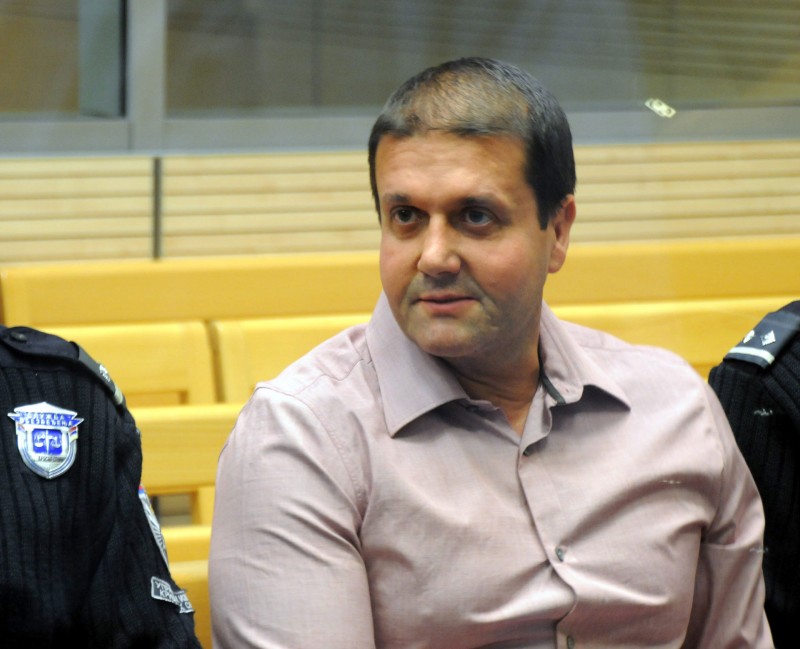
In days of the fiercest campaign against the Montenegrin authorities, there were almost no dissonant tones in Serbia which would critically review the feasibility and appropriateness of the propaganda war that was launched against the southwestern neighbor without a valid motive. In a sea of lies and orchestrated news, one exception was Verica Barać, President of the Anti-Corruption Council, who expressed doubts about the sincerity of the government in Belgrade to really combat the organized crime. "We know how our institutions work - under obedience to the executive and the party authorities - and they always work in the same way, regardless of whether Šarić or someone else is concerned. The Prosecution, court, police have not been doing their job independently of the party and the executive authorities since the beginning of transition to this day. Investigations have been carried out only about what the party and political leadership thought as suitable to be investigated. It is likely that important elements of the response to the question why Šarićs have not been arrested long ago lies in the fact that Serbia, throughout the privatization from its very beginnings, has held the position that it does not matter whether the money it clean or dirty, and therefore its origin has not been controlled . The concept of privatization was deliberately organized in a way that dirty money was allowed to enter. The Directorate for the Prevention of Money Laundering has been working for years, but what is going on with it? You have, for example, reports GRECO, in particular, one page of the report prepared two years ago that talks about the amendments to the Law on the Prevention of Money Laundering. This, translated from the diplomatic vocabulary of the report, in fact, means that the Directorate has not been working all the time because it has been initiating amendments to the law all this time so that it would not have to work. And that, of course, has been done because the government asked for that. I remind you of an attitude which could be heard in the Government at the beginning of 2002-2003, that it does not matter whether the money is dirty - it is important that you invest in Serbia. If you create a system where, because of those who stand behind political parties - and behind them are the same tycoons who represented the pillars of Milošević's state - then you can see how the money laundering, which began in one, continued over of the next two-three governments. Why? Because those who ensure that their decisions are incorporated into the laws, remain unchanged even when you change the ruling coalition, "warned Verica Barać in a statement given for the Radio Free Europe dated 22nd February 2010. [Num]
Although the accusations against the authorities in Montenegro continued in the next few years, their focus gradually changed, from accusations that Montenegrin security services were hiding Šarić to the attempts to find direct links between his operations and the important people in Podgorica in order to compromise and directly accuse the Prime Minister of Montenegro for cooperation with the Balkan cartel. The accusations against Montenegro for the failure to arrest Darko Šarić, practically collapsed to ashes when Montenegro, in November 2010 when its authorities under the arrest warrant from Italy, first arrested and then prosecuted Duško Šarić, the brother of Darko Šarić. In this operation, the Montenegrin authorities showed in practice that in situations when there is a regular cooperation with other countries, without malicious political insinuations and hidden political goals, the cooperation functions smoothly. The improvement in the relations with Belgrade was noticeable after the change in government in Belgrade in summer 2012, and the cooperation was crowned by joint implementation of the operation of surrender of Darko Šarić to the Serbian authorities in March 2014. Those events completely demolished the thesis endorsed by the official institutions in Serbia during the rule of Boris Tadić, which was aimed at compromising and disqualifying of the leading people of Montenegro
In the midst of the political and media campaign which was conducted against the authorities in Montenegro under the political mentorship of the cabinet of the former President of Serbia, two events happened away from the public eye which would be disclosed a few years later and which would seriously compromise all the allegations and accusations which came from Belgrade against Podgorica with regard to the “Case Šarić”.
Investigation undermines own credibility
Less than a month after the launch of the operation “Balkan Warrior”, Belgrade daily “Blic” published an article on 26th November 2009 under the headline “Stanko Subotić laundered money for brothers Šarić” stating allegations of a controversial former Montenegrin official Ratko Knežević and Nebojša Medojević, leader of the opposition party Alliance for Changes, against Stanko Subotić, a Swiss businessman of Serbian origin who had been the target of the media and political attacks ever since 2001 due, as it turned out, to his close friendly relationships with the assassinated Prime Minister Zoran Đinđić and the Prime Minister of Montenegro Milo Đukanović. Two days before, in his interview for television B92, Knežević accused Subotić for laundering Šarić’s money, but also for a number of other criminal offences including the murder of a controversial Croatian journalist Ivo Pukanić. Reacting to the allegations stated by Knežević, Nebojša Medojević in his statement for television “Vijesti” confirmed that he personally provided information to Ratko Knežević on the alleged illegal activities of Stanko Subotić and his link with brothers Šarić. “I gave information to Knežević which I learned from diplomatic circles, but also from the security structures of Montenegro, that Subotić and Darko Šarić are in very close relationships, that they were seen together in Pljevlja. That is not a secret, my sources from Pljevlja have confirmed that on several occasions”, said Medojević on that occasion. Following one of the reports for the alleged hiding of Šarić, the Montenegrin police in early March 2010 conducted the investigation of Subotić’s villa “Montenegro” on Sveti Stefan which determined that Šarić was not hiding there. Despite the fact that Šarić was not found in Subotić’s facility, that event would serve as a trigger for a new media campaign which, not coincidentally, involved the participation of the same actors who, months and even years before, had constituted the backbone of the campaign against Milo Đukanović and Montenegrin authorities.
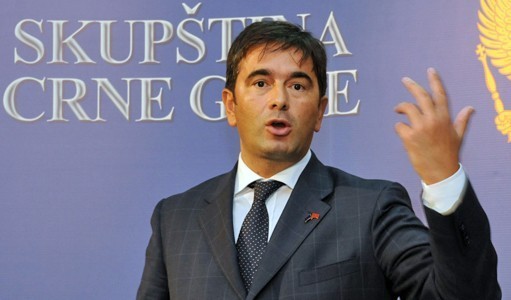
Annoyed because Šarić was not found in Subotić’s villa, Nebojša Medojević stated that “Darko Šarić and Stanko Subotić, wanted by the Serbian judiciary, are currently hiding in the villa “Jelika” on Žabljak. In his statement for Podgorica Television IN, Medojević stated that he had “reliable information received from the US Agency DEA” that Šarić and Subotić were until recently hiding in Subotić’s villa on Sveti Stefan, but that the Montenegrin police gave them ten hours to shelter before they started a search for them, by breaking in that villa. During the appearance in a TV show “Intervju sa Jugoslavom Ćosićem” on Television B92 in which Medojević repeated the same accusations, Stanko Subotić personally joined the show via telephone from his house in Geneva explaining on that occasion that Medojević had been stating his allegations upon the order of the Serbian tycoons Miroslav Mišković and Milan Beko who owed a lot of money to Subotić (tens of millions of Euros) and the ruling political circles who supported his media persecution and the court proceedings which, four years later, would turn out to be framed and based on unconvincing and unreliable evidence. The first Subotić’s addressing the Serbian public after three years of complete media isolation caused great anxiety in Belgrade, and as a reaction to Subotić’s challenge, an avalanche of media speculations were launched in order to further discredit him and, by associating him with money laundering on behalf of the accused Šarić, to procure his extradition from Switzerland.
The problem which the Serbian authorities had with Subotić at that time concerned the unsustainability of the indictment on which the Special Court in Belgrade conducted the case against him. Given that it was just another political and court vaudeville directed by the authorities in Belgrade, primarily those led by Vojislav Koštunica, and then the one which was inviolably dominated by Boris Tadić, Subotić was charged with anachronistic offense of abuse of office in a private company, which most modern legislations had not recognized as a separate offense for a long time and for which almost no European country was ready to comply with the arrest warrant from Belgrade, which was issued for Subotić. Former authorities in Serbia have attempted to connect Subotić with some other criminal offenses thus entailing the new indictment, and consequently his extradition. As this goal was the result of political wishes of Boris Tadić’s cabinet, rather than the existence of evidence of actual Subotić's involvement in the crimes concerned, it was necessary to support the venture of a new staging of the charges against Subotić with a strong media campaign which would prevent possible occurrence of any dissonant voices which would bring into question the conduct of the official authorities. The efforts to somehow connect Subotić with Šarić was fueled by the fact that the investigation against Šarić was conducted by the Deputy Special Prosecutor Saša Ivanić, who was also the applicant and the representative of prosecution against Subotić. Also known as a ruthless careerist, by execution of this request Ivanić was given the opportunity to repay to the then executive authorities for his re-election to the prosecutorial function which occurred during the disputed and later rejected reform of the domestic judiciary.
In an attempt to provide the appropriate media preparation to the Prosecutor Ivanić required for the execution of the task entrusted to him, the media and the journalists under the mentoring supervision of the cabinet of the President of the Country, launched a series of speculations on new charges against Subotić, none of which has happened later. The daily “Blic” was again the leader in those attacks and on 17th March it published an article “Cane panicking because of new indictment” which, referring to “multiple sources” and the statement of Nebojša Medojević, announced that a new indictment against Subotić would be raised soon, this time for money laundering and the organized crime, as well as for the criminal offences which were recognized also by the legislation of Switzerland in order to create grounds for his extradition to Serbia.
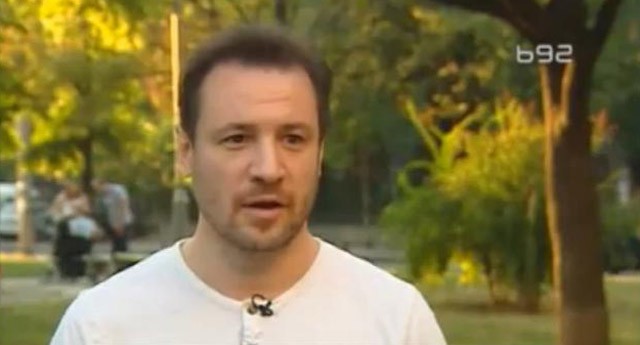
In an upcoming issue of “Blic” dated 18th March, an article by Vuk Z. Cvijić (who was a co-author of the article published on 17th March) under the headline “Preparation of indictment for cocaine trafficking”, published a new series of speculations on the alleged new investigations which were being conducted against Subotić and which should, almost certainly, result in additional charges. Although the Prosecution had already established that cocaine trafficking and money laundering were two separate operations in the case Šarić, which involved two completely different groups of people, in the case of Subotić, Cvijić “discovered” an exception in the form of his involvement in both criminal offences. “His involvement in the organization of drug trafficking and drug money laundering”. “Subotić is suspected of organizing the purchase of some companies in Vojvodina, as well as the cafes and clubs in Belgrade with the money earned from the sale of drugs”, wrote Cvijić citing an anonymous source close to the investigation. He also argued that “of all preliminary criminal procedures against Subotić – for murders from the 90s, liquidation of the Croatian journalist Ivo Pukanić – the most concrete is the one conducted for suspicion that he collaborated with Šarić in cocaine smuggling”.
The same article contained the statement of Slobodan Homen, State Secretary of the Ministry of Justice, who said that "the media appearance of the accused Subotić indicates that the fight against serious crime has led to confusion among the organized criminal groups". Special Prosecutor Miljko Radisavljević announced in a statement for B92 that the allegations stated by Stanko Subotić related to the financing of the purchase of "Luka Beograd" and company "Novosti" would be investigated. [Num] Regardless of the fact that the announced new charges against Subotić have never been filed, the announced investigation of controversial privatization of the two companies bought under mysterious circumstances by Milan Beko have also never been initiated. They came under the scrutiny of investigators only after the change of government in Belgrade and after the request of the European Commission for investigation 24 disputed privatizations, which included "Luka Beograd" and "Novosti". Despite the political support to the Prosecutor's Office to review the controversial privatization, the investigations led by Miljko Radisavljević lacked any results which seriously undermines the credibility of the functions of the Special Prosecutor that he performs.
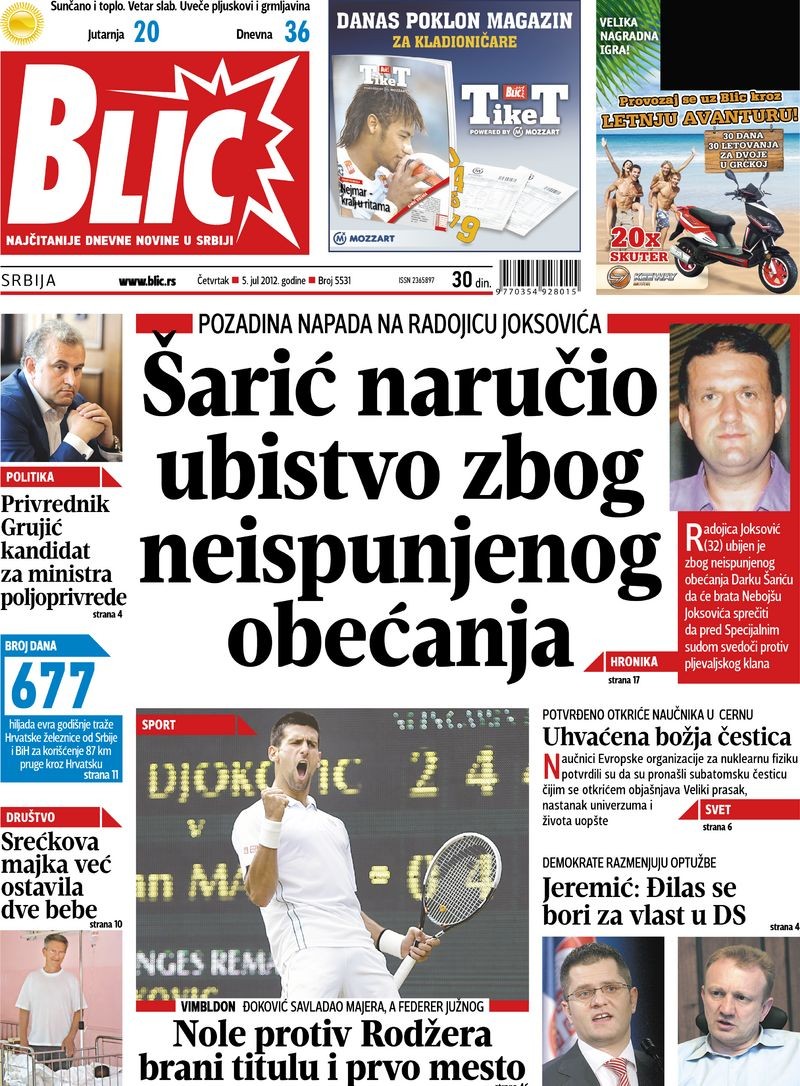
In a series without the end, Vuk Z. Cvijić (as a co-author) published another article in "Blic" on 19th March, this time under the headline "Cane and Šarić meet at least once a month." Traditionally, citing an anonymous source from the investigation, Cvijić stated that Šarić and Subotić were in constant communication, which was "particularly intensified in the past year." "The two of them have met several times in Montenegro, Switzerland and France, reveal our sources close to the investigation against Subotić and Šarić. These contacts occurred also after Šarić was suspected of smuggling drugs from South America, "stated Cvijić in his text. On the occasion of reactivation "of the case Subotić" Boris Tadić, President of Serbia, also made a statement, and said in his statement for the agency Tanjug that "all accused of serious crimes will have an excellent opportunity to explain everything in detail when they find themselves in court." "In the present circumstances, many people will become the target of accusations said by those who are interested in slandering. I would not be surprised if the criminal circles tried to slander journalists, public personalities and, of course, representatives of state institutions, all of those who pose a threat to criminals. All institutions of Serbia are determined to deal with organized crime, which, in addition to fan groups and terrorist organizations of Albanians from Kosovo, are the greatest threat to the national security”, said Tadić in an effort to disqualify in advance any attempt to discuss the activities of state bodies of Serbia in a critical way. Those few who dared to follow in the footsteps of Verica Barać, President of the Anti-Corruption Council, and to critically question the actions of state authorities, would pay a high price for their disobedience to the governing structure.
Regarding the campaign led by the daily newspaper “Blic”, this daily was contacted by Subotić himself through his lawyers in an open letter in which he stated that a repulsive media campaign had been conducted against him accompanied by abuses of state institutions. “The consequence of such behavior is the indictment which is first learned about by the media, state secretaries and politicians of foreign countries, and the Special Prosecutor’s Office is the last to learn about that regardless of the fact that is their job. It is clear to me that there is no free press, or free market or independent judiciary in Serbia. Switzerland, where I live, also finds it all very clear because they are familiar with the functioning of the corrupt government in Serbia”, said Subotić promising that, despite all, he would not stop until he proved the truth about himself.
The campaign focused on an attempt to connect Šarić and Subotić in a business sense continued in the following years, but the investigation has never resulted in, so often announced in the media, new charges which would include the above mentioned duo. One of the attempts related to bringing them in a business relationship occurred during the trial conducted against Šarić, in absentia, when one of the accused Nebojša Jestrović argued that on the day of the execution of the operation “Balkan Warrior" he and Šarić were staying in Geneva with Subotić where they were supposed to meet the delegates of the Russian oligarch Oleg Deripaska, to whom Subotić allegedly wanted to sell his company "Futura plus". Jestrović’s testimony, however, had some serious inconsistencies which proved that his story was not factually justified. Jestrović’s construction was particularly compromised by a circumstance that even on 29th September 2009 (17 days before the operation "Balkan Warrior"), pursuant to the Decision of the Commercial Court in Belgrade VI-ST-91/2009, the owner of "Futura" was prohibited to dispose of the company assets, in order to prevent changes its financial status. This means that when the operation "Balkan Warrior" was performed, the disposal of "Futura" was not possible at all, which makes the story concerning the negotiations on its sale seem meaningless and devoid of any foundation. Just a few days after the start of the operation "Balkan Warrior", on 21st October, the bankruptcy proceedings were initiated against “Futura” pursuant to the Decision of the Commercial Court in Belgrade VI St. 91/2009.
In order to avoid any possible doubts about who was the source of widely exploited information by the media about the alleged link between Šarić and Subotić, Miodrag Miki Rakić, Chief of Cabinet of Boris Tadic, and also the political mentor of the operation "Balkan Warrior" and the investigation that followed after the same personally took care of it. On the occasion when Stanko Subotić first appeared in court , after the court had accepted the bail and he was released pending trial, Rakić on16th September in a statement for "Blic" said that "the presence of Stanko Subotić in Serbia is an excellent opportunity for investigative authorities to determine the financial links of Darko Šarić and companies under his control that were used for money laundering and Stanko Subotić. " Rakic added that, in his opinion, the real motive of Subotić’s long-term hiding from the Serbian investigative authorities was “the desire of Stanko Subotić to hide the aforementioned fact”. Rakić however, did not explain why he did not initiate the investigation on possible links between Šarić and Subotić while he was in the positon of the Security Services Coordinator and while he conducted the investigation in the case of "Balkan Warrior". [Num] Despite the absence of his answer, a part of the public was already familiar with the information that the representatives of the Serbian Prosecutor's Office and the police, acting upon the Rakić’s order, reported Subotić to the Swiss Investigating Authorities in May 2009 asking them to investigate Subotić's operations and the existence of possible evidence related to the laundering of Šarić’s money. The outcome of the investigation and non-delivery of the announced evidence from Belgrade, seriously compromised the professionalism and independence of the Serbian Prosecution and other investigative bodies.
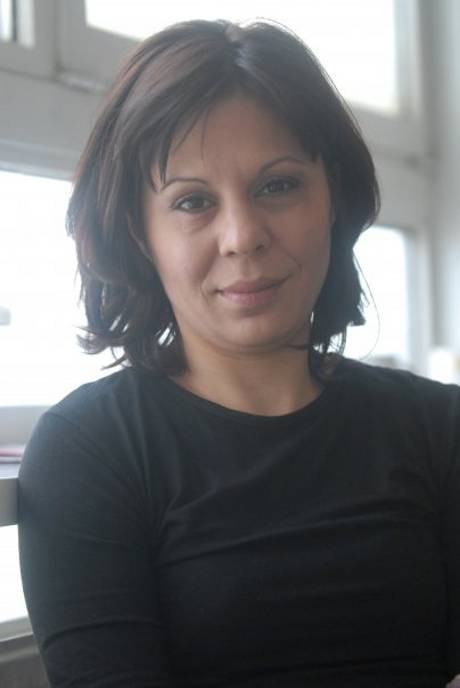
In late December 2011, the Federal Public Prosecutor of Switzerland served to Stanko Subotić a Decision on the rejection of criminal charges brought against him in 2009, orally by the representatives of the Prosecutor’s Office of the Republic of Serbia at a meeting which was, at their request, held in the Swiss Canton of Ticino. The document of the Swiss Prosecutor’s Office states that the investigation was launched in November 2009, after the meeting held in Ticino on 15th May 2009 which was attended by the representatives of police and prosecutor’s offices of Switzerland, Italy and Serbia. According to the contents of the published document, the representatives of the Serbian authorities informed their Swiss colleagues that they suspected Stanko Subotić, an immigrant from Serbia, with permanent residence in Geneva, of getting into possession of the money from the funds belonging to brothers Darko and Duško Šarić, “well-known drug traffickers” and that he “concealed the criminal origin of the money by repaying the loans granted to him by the banking institutions based in Switzerland.. Serbian prosecutors on that occasion announced the sending of request for international assistance to the Swiss authorities, but that request has never come to the Swiss authorities. Based on the information learned at the subject meeting, the Federal Judicial Police of Switzerland received the warrant in November 2009 to start the investigation aimed at determining possible criminal activities of Subotić. The results of their investigation were put in a report by the Federal Judicial Police on 1st March 2011 which report states that all performed controls failed to provide grounds to establish any fraudulent activity on the side of Subotić. Based on police findings, the Federal Prosecutor Angel Velauer gave an order to the Federal Public Prosecutor’s Office not to initiate the proceedings on the basis of suspicions submitted by the representatives of Public Prosecutor’s Office of Serbia on 15th May 2009.
The document of the Swiss Prosecutor's Office pointed to several important moments which accompanied the investigation against Darko Šarić in Serbia. Firstly, there was no link between the business of Stanko Subotić and the alleged laundering of Šarić brothers’ money, as claimed by the prosecutors from Belgrade. Secondly, the Serbian Prosecution and police filed false charges against Subotić, hoping that, through the investigation of the Swiss services, they would learn about possible data irregularities in Subotić's business which would result in either his extradition to Serbia or opening of proceedings against him in Switzerland. The fact that the Serbian investigative bodies had no evidence of the alleged money laundering by Subotić, is proved by the lack of official request for mutual legal assistance which was promised to the Swiss authorities during the meeting in Ticino. This case most clearly demonstrated the way in which the judicial system in Serbia during the rule of President Boris Tadić functioned. According to the well-established mechanism in which the link between the top political executive authorities, police, prosecution, judiciary and the media operated, first the Cabinet of the President, at the highest level, would adopt a decision that a person was declared a suspect, which was followed by the media campaign aimed to defame or demonize the marked targets with announcing the investigations, arrests, indictments and "information from sources close to the investigation" on the allegedly committed criminal offence. In order to support the essentially void, media stories, the charges based on false evidence were construed against the targeted person (in this case Subotić) through police officials and prosecutor's office officials , while at the same time the charges were brought to foreign countries in the hope that they would find some evidence of any crime committed during their investigation, which would, with the help of the media campaign, be used to back up the charges placed before the domestic courts and the local public. The information about the beginning of an investigation abroad upon reports from Belgrade, were readily placed by the local media as evidence for the truth of their allegations so that, regardless of the subsequent outcome of these investigations and the initiated court proceedings, the politically marked "culprit" would be prevented from leading a normal life and business, thus inflicting irreparable harm in the long term.
A tendency to falsely report politically marked individuals to foreign partners with no evidence indicated the complete justification of reserves which the Montenegrin Government showed at the beginning of 2010 towards the requests coming from Belgrade, for which reason the submission of relevant evidence was requested. This case has in the best possible way confirmed the suspicions which were stated early in 2009 regarding the professionalism and independence of work of the Serbian Prosecutor’s Office and judiciary by Verica Barać, President of the Anti-Corruption Council. The case which included the presentation of arbitrary suspicions and submission of false report against Subotić disclosed the deep subordination of investigation in the “Case Šarić” to the imposed political mentorship, but also the fact that the Serbian services had dealt with the Šarićs for five full months before the launch of the operation “Balkan Warrior” and three months before they, allegedly, requested assistance from the US Agency DEA in detecting large cocaine transports from Latin America. What was particularly left unanswered is the fact that the Serbian investigators were dealing with imaginary operations of laundering of Šarić’s money abroad, when his investments in Serbia proceeded smoothly!
Another key compromising moment for investigation concerning the “Case Šarić” happened in April 2010, when a secret meeting between the Serbian investigators and one of the suspects for participation in the organization of cocaine trafficking seized in Uruguay was held on the mountain Jelova Gora. While the accusations from Serbia against the Montenegrin authorities came on a daily basis because Šarić, even without an arrest warrant from Belgrade, had not been arrested while still in Montenegro the Serbian investigating authorities organized the meeting with a man from Kotor, Dragan Dudić Fric who was, at that moment, suspected as a high-ranking member of the Balkan drug cartel. Later during the trial, according to the statement of a cooperating witness Draško Vuković, Dudić turned out to be the highest-ranked member in the hierarchy of the clan who the Prosecutor’s Office, based on the judicially valid evidence, had managed to reach. Despite the fact which must have been known to the investigating authorities from Serbia still in early stages of the investigation, for legally incomprehensible reasons, the investigation was still forced towards Darko Šarić against whom, to this day, it remained impossible to provide adequate direct evidence which could bring him in connection with the smuggled tons of cocaine from Latin America.
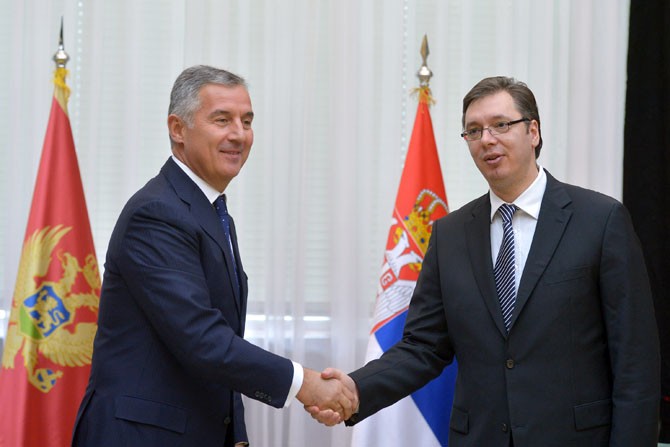
Instead of looking up to the experience of those countries which had been combating organized crime for decades, step by step, patiently leading the fight against the social scourge and achieving success in this regard, the Serbian investigators recklessly engaged in the game all or nothing" and subordinated the logic of law to the orders of their political mentors. Thus, rather than accusing Dudić on the basis of available evidence as the first defendant in the case, the Prosecution tried to make a deal with him in order to secure his testimony directed against Šarić, and, according to some reports, even against the Prime Minister of Montenegro, Milo Đukanović. Be that as it may, the agreement was apparently not reached, Dudić was not able to fulfill the wishes of the Serbian Prosecutor's Office, and his murder that happened only a month after the meeting on Jelova Gora gave rise to numerous speculations about the link between his liquidation and the contact made then. An additional dose of mystery was given to this case as the CDs with recordings of the talks between Dudić and the representatives of the Serbian Prosecutor’s Office and the BIA mysteriously disappeared from the archive of the BIA. Because of the disappearance of recordings, an internal investigation was organized in the Agency in 2013 and on that occasion the participants in the talks were interviewed among which the former Chief of the Criminal Police Rodoljub Milović, but not Saša Ivanović for whom several witnesses confirmed that not only was he one of the people present in the facility on Jelova Gora, but he also personally conducted the talks with Dudić.
Although the investigation is yet to come up with an answer to the question what was really discussed about that day and how it could happen that the recordings ofthese discussions mysteriously disappeared, with his keeping quiet and even with denying his participation at the meeting, the prosecutor Saša Ivanić gave rise to additiona doubt that it had been a legally impermissible attempt to fake the evidence against pre-determined persons through the extortion of testimony with certain contents from a possible cooperating witness. If it, however, turned out that in addition to Jelova Gora, the Prosecutor Ivanić was also present at the meeting in Ticino, or that he participated in bringing up false charges against Stanko Subotić for laundering the Šarić brothers’ money, he would prove to be so compromised that his further stay in the position of the Deputy Special Prosecutor for Organized Crime would become completely untenable. The controversial actions of the representatives of the Prosecutor’s Office have seriously compromised the position of the Special Prosecutor Miljko Radisavljević as a formational and operational head of the Special Prosecutor’s Office for Organized Crime.
Because of doubts about the impartiality of the Prosecution, the defense of Darko Šarić, on the main hearing held on February 5, 2015, requested the exemption from the process of Special Prosecutor Miljko Radisavljević his Deupty Saša Ivanić and the Republic Public Prosecutor Zagorka Dolovac. That request was rejected on 20th February by the State Prosecutorial Council, composed mainly of personnel selected during the unsuccessful politically instructed judicial reform during the rule of the Democratic Party, which greatly brings into question the objectivity in the work of that body. Even greater suspicion in this regard is caused by a chronic lack of transparency in the work of the Council, which is reflected in the total absence of information on how the individual members of that body voted in the sessions, but also in the circumstance that the last decision available on the official website of the Council dates back to the year 2011! To substantiate his claim, defense attorney of Darko Sarić's, attorney-at-law Radoslav Baćović explained that the request for the exemption of prosecutors was filed because of the meeting on Jelova Gora, which was held on 18th April 2010, and which was attended by the Deputy Prosecutor for Organized Crime Saša Ivanić. Baćović said that everybody except the Prosecutor Ivanić, who had been conducting the proceedings against Sarić, had been interviewed about that meeting and that the BIA had submitted a document on that meeting to the Special Court in October 2014. He said that the statements of those interviewed were different, but that the BIA officer Jadranko Petrović had clearly pointed out that the Ivanić had had the leading role at that meeting. The Attorney-at-Law Baćović said that the Prosecutor's Office had no trace of that meeting, that Ivanić had not compiled an official note as well that two discs and a CD with the contents of that meeting had been destroyed. The defense pointed out that, according to the contents of the official notes of the BIA, Dudić had then spoken affirmatively about Šarić, what Ivanić, as a representative of the state authority, had been obliged to verify in order to determine the truth and the facts of the case.
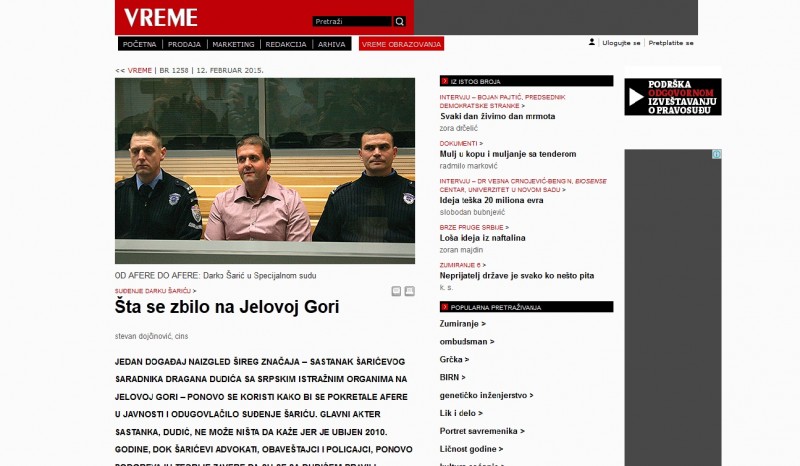
"The point is that the talks with the accused, with persons against whom the criminal proceedings are conducted or where there is at least a reasonable suspicion that a crime has been committed, should be held at the headquarters of the Prosecutor’s Office, not during the night in the hills of Jelova Gora. That is why there are no CDs, no DVD, nor a single trace of that event, nothing has ever been filed at the Prosecutor’s Office”, he said pointing to the fact that there is not a single trace of that event or about what Dragan Dudić spoke about. On that occasion, Baćović distributed to the journalists gathered in front of the Court the Official Note made by the BIA, the contents of which served in the next few days as a pretext for the new media manipulation which again disclosed the close links between the Prosecutor’s Office and certain police structures, media and some journalists who had, for many years, upon the order of the leading people in the investigation, published notorious untruths on the course of investigation and the prime suspect in the process.
Political and Police Intrigues
As soon as they came into possession of the BIA material, which was declassified pursuant to the decision of the Director of BIA Aleksandar Đorđević in summer 2014, the media, in a very selective way, reported on the contents of those notes. What particularly caught the eye is the fact that the media reports moved focus from the suspicious conduct of the state authorities during the investigation against Darko Šarić to some completely ephemeral details which found their place in the BIA note, apparently, just to blur the essence of the affair Jelova Gora. Keeping silent about the contents of the entire document, the media predominantly took their cue from the statement of Prosecutor Ivanić who said in the court room that it was the attempt of the defense of Darko Šarić to obstruct and delay the proceedings against their client. Uncritically reporting the interpretation of the Prosecutor, the media have completely ignored the fact that the official document of the Security and Information Agency is concerned, but also the fact that the Prosecutor’s Office have never explained why the disputable meeting was organized, and why they failed to disclose the details of what was the subject of the talks. Guided by the baton of hidden interest of their funders, the media were “hooked” almost in unison and their focus was put on one detail in the statement made by Rodoljub Milović, former Head of the Criminal Police Directorate, who, testifying about the meeting on Jelova Gora, presented the information of his meeting with a Montenegrin citizen Brano Mićunović with whom he had allegedly discussed the surrender of Darko Šarić. According to Milović’s allegations, Mićunović had demanded on that occasion that the judicial authorities of Serbia should come out with a concrete proposal on the duration of imprisonment to which Šarić would be sentenced in the event of his voluntary surrender. Milović said that he contacted the Special Prosecutor Miljko Radisavljević after those talks who showed no interest in the implementation of the said proposal for the agreement on surrender, for which reason the negotiations were not resumed.
Milović spiced up the whole story with, for the media particularly interesting detail, according to which Mićunović, requesting the firm guarantees for the fulfilment of the possible agreement, reportedly threatened that, in the event of non-compliance with the agreed, he would have the Director of the Serbian Police Milorad Veljović, assassinated. There is no doubt that Milović, as an experienced police operative and a man who, during the performance of his position, maintained close links with a large number of police journalist associates, definitely calculated with the possibility that the BIA Official Note could become public, for which reason, he included a part of the conversation with Mićunović in his statement about Dudić, although it was in no way related to the meeting held on Jelova Gora. Having calculated with the possibility that the episode with Jelova Gora could become public, Milović wanted to leave to the media the bombastic enough information which most of the journalists would get hooked on and the publication of which would cast shadow on the essence of what happened during the Operation “Thunder”(code name for the meeting with Dudić on Jelova Gora).
As could be expected, his long-term associates in placing the media misinformation and untruths immediately jumped into the Milović’s net as per command, including primarily those from the daily newspapers “Blic”, “Politka”, “Kurir” and the weekly newspapers “Vreme” and the Serbian Centre for Investigative Journalism (CINS). Focusing on exactly those details suggested by Milović in his statement, according to the well-tested matrix, those media presented the meeting with Mićunović as a conversation between the police general who represented the State of Serbia with an uncrowned head of the Montenegrin underworld as a representative of the State of Montenegro! At the same time, this story was used as “evidence” that Šarić was hiding in Montenegro, a thesis which run throughout the media reports all to his surrender in March 2014, but which continued to exist in the a part of the public even after that event, regardless of the assurances of the Serbian and Montenegrin officials that Šarić was hiding in Latin America countries.
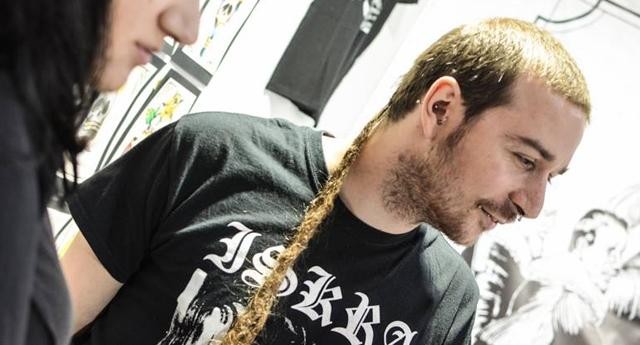
In order to understand the turbulence and media fights which occurred after the surrender of Darko Šarić, it is necessary to go back to the breakpoint for the functioning of the established link between the executive authorities, judiciary and the media, and that is the moment of change in political power in Serbia in May 2012. Despite the claims of the media close to the old regime that the change in power left the fight against organized crime without the political support, time has shown that the only thing which the investigation in the “Case Šarić” was deprived of is the political mentorship of the cabinet of the President of the State, which had hitherto directed the investigative and court proceedings. The disappearance of political control and protection created a real risk of unauthorized disclosure of link between the executive authorities, investigative authorities and the judicial authorities, but also everything what had been done during the investigation contrary to the law, under the direct political influence and pressure of the executive authorities.
After two and a half year-long endeavors of Borić Tadić to build a false image of an uncompromising fighter against organized crime on the case Šarić and to win new elections on that wave and to manage to achieve the change of government in Montenegro, the fall of his regime left a group of high-ranking officials at the Prosecutor’s Office and the police, who were directly involved in all illegal actions and manipulations which accompanied the investigation in the case “Balkan Warrior”, without their political mentorship. In panic fear that all what was done in the period from 2008 to 2012 (including the cases Subotić and Jelova Gora), the Head of the Criminal Police Directorate of Serbia Rodoljub Milović, frantically began to seek contact with the Montenegrin state authorities. In an attempt to get in touch with Milo Đukanović or persons close to him, Milović included his Montenegrin connection represented by Veselin Mujović, a Serbian police informant and a person several times suspected of drug trafficking and arrested on charges for extortion, fraud and document forgery, in his mediation mission According to information from the immediate environment of the Prime Minister of Montenegro, Mujović tried to schedule the meeting between Milović and Đukanović on several occasions so that the Head of the Serbian Criminal Police could smooth out his relations with the Prime Minister of Montenegro and to justify his role in the creation of accusations which came from Belgrade against the government in Montenegro during the rule of Boris Tadić as allegedly being forced to obey the orders of the Serbian state leaders. Milović and Mujović tried to schedule the meeting with Đukanović also through Goran Radisavljević Guri, former commander of the Serbian Gendarmerie, and when that attempt also failed, Mujović scheduled the meeting with Brano Mićunović to his Belgrade mentor through his brother Ratko Mićunović.
Milović used that meeting to present his activities to the new authorities in Serbia, the then Prime Minister Ivica Dačić and the First Deputy Prime Minister Aleksandar Vučić as a bilateral meeting in which Serbia was represented by the General of Police and Montenegro by Brano Mićunović. Milović, who enjoyed the confidence of Alesandar Vučić at that time due to several successful investigations of corruption in Serbia, launched the story to the First Deputy Prime Minister of how Milo Đukanović was allegedly hiding Darko Šarić in Montenegro claiming that he could organize the surrender of Darko Šarić, which would later, after the arrest of Mišković, be the crown of Vučić’s political career. In order to substantiate his story, Milović daily fabricated the official notes on the basis of which Vučić on several occasions announced that Šarić would soon be arrested, believing that he was hiding in Montenegro. Under the influence of false promises made by Milović, on 31st December 2012, in his New Year’s interview for the tabloid “Kurir”, Vučić announced that Šarić would be in the Serbian court already in the next year 2013 , and the same statement was repeated several days later, on 6th January 2013 in his Christmas interview for “Informer”. Less than a month later, on 28th January 2013 Vučić publicly announced that Šarić would certainly be arrested in the first half of that year.
In an interview for the weekly magazine NIN dated 23rd May 2013, speaking of Šarić, Vučić said that the Serbian authorities were actively working on Šarić’s arrest and added that he would be very unhappy if it did not happen soon. “I was a bit naïve when I thought that no-one wanted to protect Mr. Šarić, but I was wrong. But I also say that all those who think that the State of Serbia would sit still and wait are also naïve”, said Vučić. When asked whether Šarić was protected by some countries in the region, or maybe domestic circles, Vučić answered: “I cannot tell anything more to you. I was careless when I previously made a statement about Šarić and I do not want to repeat that mistake again.”
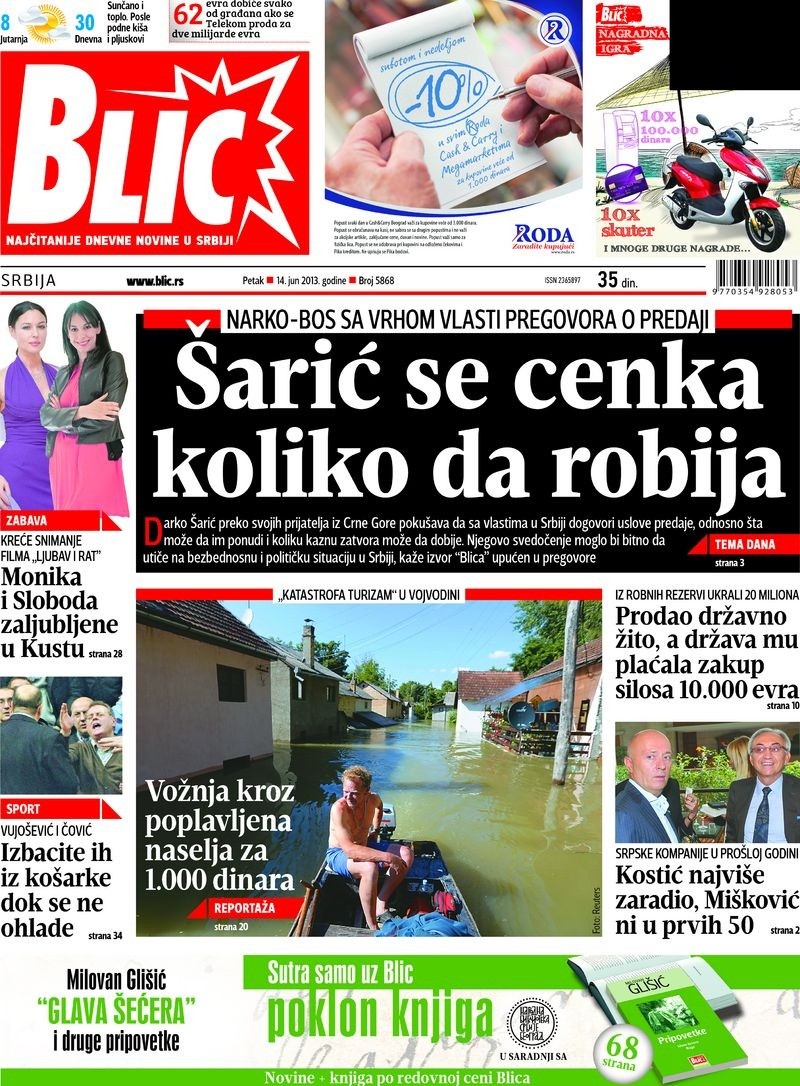
In his statement for Television B92 dated 28th August 2013, Vučić said that Darko Šarić would be arrested “in the period not dubious”. Admitting that the only deadline he failed to fulfil is the one related to the arrest of Šarić, Vućić explained that the Serbian services were working on his arrest in cooperation with the world’s most powerful services. “I was inexperienced when I said that something would happen by the month of June. I will not set deadlines any more, but the citizens of Serbia should know that we will finish the job”, said Vučić.
Answering in the Parliament to the questions of the opposition members of Parliament, Vučić asked on 31st August why Šarić had not been arrested by the previous Government when they had full four years for that. “I guarantee that we would arrest him, and that is the difference between us. That is the difference in results. You have been chasing him for four years and failed to arrest him, and we have been chasing him for one year. Much less will you have to wait and the result will be much more different”, said Vučić on that occasion.
The announcements of arrests which were based on the assurances of Rodoljub Milović were going on in parallel with the campaign of the media and journalists close to the Head of the Criminal Police Directorate. On 30th April the tabloid “Informer” published the information that the American services CIA and DEA had located Darko Šarić in Montenegro, in a village between Žabljak and Pljevlja. An article by Tamara Marković Subota “Darko Šarić negotiates on duration of imprisonment” published in a daily paper “Blic” on 14th June 2013 again stated the claims that Šarić was hiding in Montenegro, and through his messengers was trying to agree the terms of his surrender with the new Serbian authorities. The same paper, on 4th December published an article “Vučić prepares a hell of December” which published the “information” that special teams of Serbian security services were on the verge of arresting Darko Šarić and the expectations that he would be arrested by the end of December 2013.
In late 2013, after Aleksandar Đorđević had been appointed the new Director of BIA and after a special team to locate and arrest Darko Šarić had been formed, the Criminal Police Directorate and police were excluded from the search operations for the accused and the newly formed team soon came to some concrete results in work. Šarić was located in Latin America where, as it turned out, he had been all the time, despite the media campaign in Serbia and claims of top officials of the Government, police and Prosecutor’s Office who claimed that Šarić had been hiding in Montenegro, Geneva, South Africa, Russia… After being successfully located in early 2014, an agreement on his surrender was reached which was implemented on 18th March, immediately after the end of the parliamentary elections in Serbia. In the operation of his arrest, the Serbian intelligence agency closely cooperated with the security services of Montenegro, thus denying the long-term accusations aimed at the official Podgorica related to the hiding of Šarić. The final end the accusations against Montenegrin authorities for the hiding of Šarić was put by the Serbian minister of justice Nikola Selaković in his statement given on 19th March 2014 when he said that the operation of Šarić’s arrest represented the culmination of a joint cooperation between the Ministries of Justice of Serbia and Montenegro. He pointed out to the irresponsible information spread in public regarding the whereabouts of Šarić’s alleged hiding, emphasizing that it was untrue that he had been hiding in Montenegro, and that his surrender put an end to the story that Šarić had been hiding on the border between Montenegro and Kosovo or in a country in the region. Minister Selaković said on that occasion that there was a reasonable doubt that there had been contacts between the Serbian state structures on the one side and criminal organizations on the other side. "When someone brings into the country two or three million Euros and tries to bring them into the official flows it could not possibly go unnoticed, especially when you are a country in transition, in which many companies have been privatized in the process of money laundering”, said the Minister of Justice of Serbia. Selaković also repeated his assessment of the unfounded allegations which had been previously said against Montenegro during his visit to Montenegro on 30th June 2014 when he said that an illusion had been created in Serbia for many years that Darko Šarić, accused for cocaine trafficking, had been hiding in Montenegro. Selaković did not want to go deeper into the motives of such intentions, but he stated that Šarić’s surrender and arrest in Serbia had shown that “many stories and tales had nothing to do with the truth”.
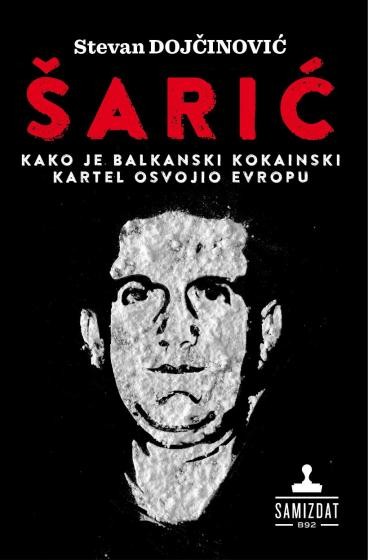
Concurrently with Šarić’s surrender and announcements that he would present in his defense the information about the involvement of high officials of police and former authorities into the illegal affairs, the media started a new campaign, this time aimed at Milo Đukanović and Director of BIA Aleksandar Đorđević. Šarić appeared in court on 24th March, and in the next few appearances he named the police general “Papaya” as a person who stood behind the accusations built against him. On 16th June he revealed that general “Papaya” is actually the Head of the Criminal Police Directorate Rodoljub Milović, and on that occasion his defense attorney asked the Court to request that BIA should provide document about the secret meeting on Jelova Gora with, at that time a suspect, Dragan Dudić Fric, after which this affair became publicly disclosed. In addition to “Papaya”, Šarić also accused the cooperating witness in the trial for the murder of Zoran Đinđić for framing the charges against him, who was named as “Case Mango”. Based on the description of that person (founder of the “Zemun clan” who bought asphalting machines with the money from kidnapping), the media unambiguously concluded that the person concerned was Ljubiša Buha Čume who was considered to be a person close to the highest police officials of the country.
In parallel with the trial against Šarić and the information he presented before the chamber, the announcements started coming from the Government of Serbia that all accusations would be investigated. That caused additional nervousness in the circles close to Milović and the Director of Police Milorad Veljović, which resulted in the increased media campaign, which was this time dominated by the tabloids “Blic” and “Kurir”. Ljubiša Buha Čume, a cooperating witness in the proceedings for the assassination of the Serbian Prime Minister Zoran Đinđić said on 14th June for the newspaper “Blic” that “Zemun mafia ravages Serbia again”. “I have irrefutable evidence for that and I am willing to tell the police everything I know if I am asked to do so”, said Buha who, due to the suspicions that, abusing the status of a protected witness and protection by the state, was still unimpededly involved in crime, was left without police protection in those days. Buha, however, announced that the duty of his protection was assumed by criminal police after the abolishment of police protection upon the order of the Chief Milović His statements were followed by the statement of Vuk Drašković who said for the paper “Blic” dated 15th June that the information he had indicated that the “protected witness Ljubiša Buha Čume was right when he said that “Zemun clan” was ravaging Serbia again”. As a reason for alarm Drašković stated the fact that Buha, a key protected witness against Legija and his “Zemun clan”, was left without police protection recently, but he also told the information (which proved to be incorrect) that Milorad Luković Legija, convicted as an organizer of the assassination of the Prime Minister Zoran Đinđić and one of the key organizers of political murders during the rule of Slobodan Milošević, would get more lenient treatment in prison which he would use to escape the serving of his 40-year prison sentence.
Buha continued his accusations in a press statement for “Kurir” dated 16th June when he claimed that “the new Zemun clan” poses a serious threat to the country. On that occasion he went a step further by presenting a claim that out of seven members constituting this organization, three of them were holding important positions in the country. “I can say that all members of the clan are at large, and three of them are state officials and hold important positions in the country”, said Buha. Already on 17th June “Kurir” published an unbelievable claim that Milo Đukanović, the Prime Minister of Montenegro, had been trying to take over the control of the Serbian media. According to the sources close to the top of the Serbian Government, this senseless text was aimed at creating distrust in relationships between Aleksandar Vučić and Milo Đukanović, thereby ruining their mutual good relationships established after the successfully implemented operation of Šarić’s surrender, which seriously concerned certain circles, most probably the remains of the linkage which dictated the investigation and the media campaign in the “Case Šarić”. Their nervousness was the result of fear that the announced changes in the police could only be the beginning of more extensive investigations which would disclose all manipulations and abuses which occurred within the state institutions themselves, for which reason the media pressure and blackmails tried to stop the investigations of those suspicious circumstances at the very beginning.
Đukanović reacted to those senseless accusations in a press statement submitted to the Tanjug news agency in which he expressed his belief that his “colleague and friend in Belgrade Aleksandar Vučić would properly decipher the handwriting which is very reminiscent of that from the year 2003” In response to the warning of the Prime Minister of Montenegro, Aleksandar Vučić confirmed that all what Đukanović was talking was not far from truth. Stressing that Belgrade and Podgorica had had good and friendly relations, at the highest and best possible level since Montenegro had become independent country, Vučić especially thanked Đukanović for the expressed concern.
The media close to Milović and Veljović continued their campaign all until the Prime Minister of Serbia on 20th June announced the decision on dismissal of the heads of police directorates, one of which was also Rodoljub Milović. In his last attempt to avoid dismissal, Milović showed an official note to Vučić in which he accused the Director of BIA Aleksandar Đorđević of being a leader of the “new Zemun clan” and that he received six million Euros from Šarić in order to procure Milović’s dismissal by framing the “Case Papaya”. Bearing in mind previous negative experience with Milović’s official notes, the Prime Minister of Serbia Aleksandar Vučić left the examination of these allegations for investigation, and the heads of police directorates were dismissed for lack of results in their work, deteriorated relations and the chaos crated within that part of security structures. Despite Milović’s dismissal, Vučić kept Milorad Veljović at the position of the Director of Police, but the same positions were kept by the heads of the Special Prosecutor’s Office Miljko Radisavljević and Saša Ivanić, who were direct Milović’s accomplices in everything related to the “Case Šarić”, but in many other suspicious cases from the domain of their work. For completely incomprehensible reasons, there were no investigations related to the suspicions said on account of the former Head of the Criminal Police after Milović’s dismissal, and all his personnel were kept in the criminal police. This decision is all the more puzzling if we bear in mind the fiasco related to 24 controversial privatizations which was completed only in late 2013, and which was jointly implemented by the Special Prosecutor’s Office for Organized Crime and the Criminal Police Directorate. That investigation was concluded with no satisfactory answer to the key dilemmas and suspicions stated in its reports for many years by the Anti-Corruption Council, which was backed by the European Commission asking that the allegations should be thoroughly investigated.
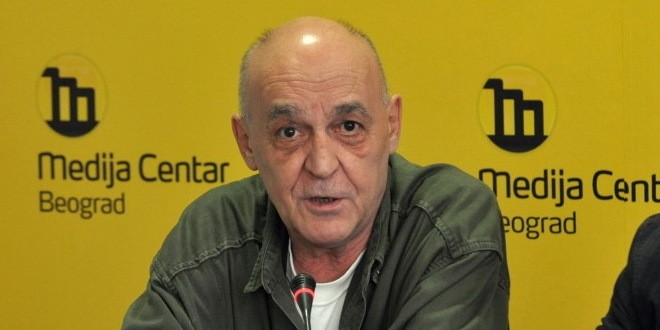
Regardless of the dismissal of heads of police directorates, including Rodoljub Milović who had significantly directed the media reporting on the most significant investigations in the country through his journalist associates, a part of the media continued their attempts to defend all what Milović, together with the people from the Prosecutor’s Office, had been doing under the direct political instructions of Miodrag Miki Rakić during the rule of Boris Tadić. In addition to forcing some, until then less exposed, and consequently less compromised media, the media sphere witnessed the activation of some new forms of interest-based cooperation in reporting which was based on previously established link between the opposition media in Montenegro and their counterparts in Serbia.
Laying bare media links
First due to the loss of political background after the elections in May 2012, and then due to the loss of strongholds in the major parts of political structures, certain media in Serbia and Montenegro were the places of complete confusion and panic which soon led to the disclosure of links established between them a few years before. In an attempt to conceal the real reasons for what they did in the past, abandoned from their political and police mentors, the media started the campaign aimed at defending the character and work of Rodoljub Milović, and in the meantime deceased, Miodrag Rakić. Already the reports related to the dismissal of heads of police directorates insinuated that the Prime Minister Vučić decided to make that move under the pressure of the “media campaign” and some interest groups. Thus, on 17th June, three days before the announcement of the decision on dismissals in the police, the daily newspaper “Blic” published an article by Vuk Z, Cvijić under the headline “Cows, grandmas and other exotic fruit”, in which the author, even before the official investigation, non-critically rejected all Šarić’s accusations on account of the general Milović. In that text, Cvijić tried to draw a parallel between the campaign which accompanied the investigations and trial of those responsible for the assassination of the Prime Minister Đinđić and the media reports on the case Šarić, ignoring the fact that in the case Šarić the orchestrated campaign lasted for more than five years and that , unlike the members of the “Zemun clan”, Šarić’s attorneys were completely denied access to the media in that period. A day after the changes in police leadership, in its text under the headline “Pešić: the best policeman leaves because of Šarić’s statement”, “Blic” reported the attitude of a sociologist Vesna Pešić who, although having previously never been dealing with police issues, on that occasion stated that the chief Rodoljub Milović was “among the best policemen” and that his dismissal “has been planned on the basis of the accused drug boss Darko Šarić” with no other evidence. Deliberately ignoring all affairs which remained unexplained after the dismissed Head of the Criminal Police Directorate (for which she herself often accused him), Pešić switched the responsibility for his dismissal to the Serbian authorities, which later became the common place in reporting of those media which faced the danger of exposure of their dishonorable role in the campaign which had been conducted against Montenegro since 2008.
On 23rd June in the weekly newspaper “Akter”, in his article under the headline “Collapse of the Intelligence Security System”, the author Tihomir Trišić brought in connection the dismissal of police general with the escalation of “conflicts between the Head of the Criminal Police Directorate Roćko Milović and Director of BIA Aleksandar Đorđević”. In his text, Trišić blamed the Prime Minister Aleksandar Vučić that in this “conflict” he took side on the basis of his indirect godfather relationship with the Director of BIA. Two and a half weeks later, the author of this text was arrested for frauds in transactions with Pančevo “Azotara” which disclosed his real motives for the defense of the dismissed head of the Criminal Police Directorate. In the same issue, the weekly magazine “Akter”, in a text “Attack on People who Broke Šarić’s Drug Clan”, the author Stojan Kosanović concluded that the dismissals of police generals showed that the “trial of Darko Šarić is more like a takeover of power and authorities in Serbia by the same drug cartel and its political patrons, rather than its dismantling”.
In the weekly magazine “Vreme” dated 26th June, the author Miloš Vasić, remembered for his participation in a campaign against the Montenegrin authorities at the time of announcement of the arrest warrant for Darko Šarić, published a text under the headline “Political Will in Action” in which he called the decision on dismissal of Milović the “theatre” created as a consequence of “long-time and carefully prepared propaganda attack” which involved the participation of Darko Šarić, Milo Đukanović, Aleksandar Vučić, Tomislav Nikolić and many other actors from the world of politics and the media.
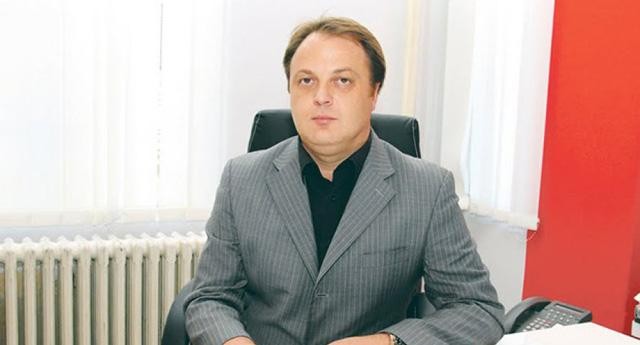
Somewhat earlier, only a day after the dismissal of Milović, the CINS website published an article under the headline “Dismissed Heads of Serbian Police after Media Campaign” which stated that the dismissal of the heads of police had been preceded by one-month campaign in which the author of the text Stevan Dojčinović included the media reports from the trial of Darko Šarić, which reported parts of this statements in which he made accusations against the “General Papaya” who turned out to be Rodoljub Milović. Dojčinović, however, became famous four months later when he published a book “Šarić – How the Balkan Cocaine Cartel Conquered Europe” in which he tried to re-actualize the type of interpretation of events related to the operation “Balkan Warrior” which had been dominant prior to the change of government in May 2012. In his book about Šarić (for which the review was written by the journalist of “Vreme” Miloš Vasić) , Dojčinović basically repeated what had been the leitmotif of the media campaign conducted under the auspices of the Cabinet of the former President of Serbia Boris Tadić. The then government of Serbia was presented as a group of uncompromising fighters against organized crime, and the members of the investigative teams as top professionals who had always performed their duties solely on the basis of legal and professional standards, with no political influence. Unlike the Serbian authorities, the Government in Podgorica was presented as a sponsor of the Šarić clan, and Montenegro was dubbed a mafia state. The change of power in Belgrade in May 2012 was presented as an extremely unfavorable circumstance for continuing the fight against crime, and the termination of political pressures on courts, which had been one of the key features of the rule of the previous regime, was presented as a form of benevolence towards the defendants in the current proceedings. The dismissal of General Milović was presented as a part of efforts of the new government and corrupt media to ruin the process conducted against Šarić by dismissal of those who had broken the backbone of the Balkan drug cartel, although Dojčinović himself admitted that due to the leakage of information from the Ministry of Internal Affairs, Milović, was later excluded from the seizure of drugs in Uruguay as the most sensitive part of the operation “Balkan Warrior”. At the same time, the book only sporadically mentions the alarming deficit of valid court evidence in the indictment against Darko Šarić and the problems incurred due to the illegal wiretapping and collection of evidence for which reason the process conducted in Slovenia had already been dropped. Apart from the purpose of their denial and ridicule, the arguments of the defense of Darko Šarić, as in most of the media, were left no space.
The origin of the material published in the book and its actual purpose is most eloquently revealed in a detail that the author himself advertised his book as the work revealing the “secrets from Miki’s drawer” which related to the information available to late Miodrag Miki Rakić. The only critically intonated text on Dojčinović’s book was instantly declared by CINS (where Dojčinović is an editor in chief) and by the related media as a campaign against the book and the “truth” it revealed!
Although the book itself revealed nothing new related to the operation “Balkan Warrior”, it served as the initial trigger for the activation of a new mechanism of media manipulations which, in the absence of political mentorship of the top state officials and the information which leaked from the top of the Ministry of Internal Affairs, should help the compromised media to justify their own dishonest actions from the past. Under the guise of opposition action against the current authorities in Serbia and in Montenegro, that model was aimed at trying to secure the financial survival of tis protagonists through their attachment to the funds of EU and the USA which support the freedom of the media in the candidate countries for EU membership. Although in his book about Šarić, the author made a compilation of purpose-selected information from the investigation and articles which had previously been published in the media, and which were mainly engaged in fruitless efforts to prove that Montenegro was a mafia state whose authorities were related to laundering the Šarić brothers’ money, stale and recycled information contained in it was taken by a large number of media as the exclusive news. Therefore, a series of quite unfounded texts on Montenegro published in April 2014 by the organization Organized Crime and Corruption Reporting Project (OCCRP), or a sister subsidiary of CINS in Sarajevo, were first included by Dojčinović in his book, and later those texts were reported by the Montenegrin and Serbian media as exclusive information and discoveries. Thus, Podgorica “Vijesti” published the extracts from Dojčinović’s book in sequences, as a feuilleton , although the largest part of its contents had already been published in its issues in print. The feuilleton from “Vijesti” was uncritically reported by the Serbian media as a sort of discovery, although most of them had already released that information when it was first published in 2010, and somewhat later when OCCRP published in on its website in April 2014. Particularly impressive in that period is the case of Tanjug agency which first reported the text from Podgorica “Vijesti” as the current information but after the editorial team had realized that it was a series of articles quoting the contents of Dojčinović’s book, which itself was a compilation of previously published media material, the editorial team of Tanjug apologized to its customers for that grave professional misconduct In difference to Tanjug, the majority of the Serbian media which reported the Agency’s information not only failed to give explanation to their consumers but, in the largest number of cases, they failed to mention the Tanjug’s apology. That example practically demonstrated the commitment to simulate the discoveries created as the result of the investigative and independent journalism by recycling old information ant their constant insertion into a vicious circle of media manipulations.

His consistency in justifying the illegal actions of the Prosecutor’s Office and former heads of the police, Stevan Dojčinović demonstrated in an article on the occasion of publication of the contents of the BIA documents about the secret meeting on Jelova Gora which was published in the weekly edition of his allied magazine “Vreme” dated 12th February 2015. In his article under the headline “What Happened on Jelova Gora” Dojčinović concluded that Šarić’s attorneys-at-law, intelligence officers and police officers again fuelled the conspiracy theory in order to launch affairs in public and to delay Šarić’s trial. By contradictory conclusions the Editor in Cheif of CINS reported that the link between the murder of Dudić and the meeting on Jelova Gora were conspiracy theories coming from the defense attorneys, but he himself later admitted that Rodoljub Milović in his statement expressed the belief that Dudić had been murdered because of the meeting concerned. Dojčinović even expressed the doubt that Milović’s statement was probably the reason for the occurrence of the above conspiracy theories. The only thing Dojčinović failed to explain is the motive because of which Milović in his statement supported the stories of those because of whom he was, allegedly, removed from office. Regardless of being illogical, Dojčinović’s superficial referral to the affair Jelova Gora fulfilled the purpose of his article – to push this topic once again under the carpet by relativizing of the importance of that event and stories on the alleged tricks of the defense attorneys so that the light would never be shed on what had really happened there.
And while the media during the rule of Boris Tadić represented a mere instrument for conducting an orchestrated campaign, which was continued by inertia after the change of Government in Belgrade, legal arguments of the defense attorneys of the accused in the “Case Šarić” still faced a complete media blockade.
Defense under Media Blockade
Although exposed to various forms of pressure and under total media blockade, defense attorneys of Darko Šarić have sought to indicate, in a legal way and in legally prescribed procedure, the arrogance and abuse practiced by the Prosecution while conducting the investigation and during the proceedings, as well as the impermissibly sympathetic attitude of the Court to such outbursts of Prosecution. The document prepared by the defense, for which the media in Serbia showed no interest, stated more than 150 objections and proposals covering 70 pages which Šarić’s attorneys-at-law had been presenting to the Trial Chamber since the beginning of the trial, the largest number of which relate to the period in which their client was still on trial in absentia. The objections and proposals of the defense are grouped in several thematic units starting from those related to the lack of jurisdiction of the courts in Serbia for a trial against Šarić for criminal offences listed in the indictment, then the absence of conditions for a fair and rightful trial, use of illegally collected evidence (primarily illegally wiretapped conversations) , then the violation of the law during the execution of certain procedural actions, requests for international legal assistance addressed contrary to the provisions of the European Convention, legality of the conclusion of plea agreements and the acquisition of the status of cooperating witness and many other procedural and legal objections. Convinced that the principle of the rule of law is above each individual case, below are the most significant objections of stated by the defense which have never been published anywhere in the media.
In objections regarding the lack of jurisdiction of the courts in Serbia over the trial of Šarić for criminal offences listed in the indictment, the defense pointed to the obligation of the court to take account of the actual jurisdiction over the trial. Indicating that the Prosecution has made a structure in which they created an illusion that the Serbian courts have jurisdiction over the trial, the defense has stated the arguments which denied those allegations of the prosecution. In that part of the objections, the document indicates that, according to the statements made by the prosecution, the criminal offence referred to in Article 246 of the Criminal Code of the Republic of Serbia (CC) which relates to the unauthorized trade in narcotic drugs was performed in Uruguay, Argentina, Brazil and Italy. Given the indictment was filed against a Serbian citizen for a criminal offence committed outside its territory, it was necessary to fulfil certain, legally prescribed requirements, so that a court in Serbia could have jurisdiction over the trial. Given the prosecution claims that Darko Šarić is a Serbian citizen, according to Article 8 of the CC, the criminal law of Serbia shall apply to a Serbian citizen for a criminal offence committed abroad only if the same is found in the territory of Serbia or extradited to Serbia. In this particular case, the accused Darko Šarić was neither in the territory of Serbia nor extradited to Serbia. If , on the other hand, the accused Darko Šarić is a citizen of Montenegro, as claimed by the police in criminal charges, according to Article 9 of the CC, the criminal law of Serbia shall apply to a foreigner for a criminal offence committed abroad who has committed a criminal offence outside the territory of Serbia against Serbia or against a Serbian citizen or who committed a criminal offence abroad against a foreign country or against a foreigner, only if the same is found in the territory of Serbia without being extradited to a foreign country. In this particular case the accused has neither been in the territory of Serbia nor was he extradited to Serbia nor has Serbia requested his extradition, nor has any other country sought him for committed criminal offences in its territory. According to the provisions of the CC related to the jurisdiction of domestic courts over this offence, the courts in Serbia had no jurisdiction over the accused Šarić prior to his surrender.
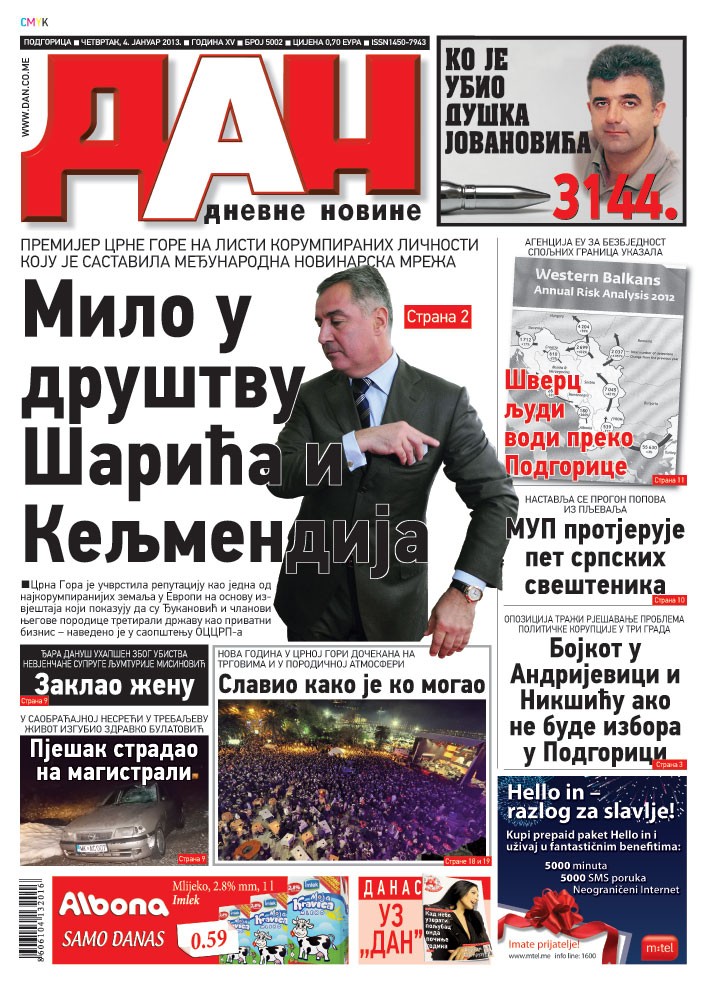
With regard to the criminal offence of conspiracy to commit criminal offences referred to in Article 346 of the CC (organizing a criminal group), the territories of the Republic of Serbia, several countries of the former Yugoslavia, West Europe and South America were designated as the placed of execution of criminal offences, while the West European countries were designated as the place of its sale. The territory of Serbia has neither been designated as the place of sale nor as the place of mediation or purchase of drugs.
The Prosecution, therefore, designated the territory of several countries as the place of organizing the criminal group and execution of criminal offences. According to the generally accepted principles regarding the jurisdiction, if the offence has been committed or attempted within the jurisdiction of different courts, the court which,upon the order of the authorized prosecutor, first initiated the procedure shall have the jurisdiction, which in no case was the court in Serbia. If Italy, Uruguay and Argentina are the only places where the organized criminal group has committed at least one criminal offence for which they joined together, then the court in Serbia has no jurisdiction to act in those specific matters. The defense has also pointed to the Court that the Prosecution failed to specifically state the organization-related acitivities which Šarić undertook in the territory of Serbia. The first procedures related to the drug trafficking, which were described in the indictment and related to the activities of the organized criminal group were initiated by the courts in Uruguay, Italy and Argentina.
Moreover, the indictment described the criminal offences against public health starting from the unauthorized purchase of drugs in Argentina, its transfer to Uruguay and intent, as claimed by the Prosecution, to transfer the drugs to the countries of Western Europe. Drug trafficking in the territory of those countries created an abstract threat to the health of people of other countries, but not of Serbia, whereby the requests for prosecution have never been filed by other countries. Due to the fact that this offence had been completed at the moment of organizing, the court which first initiated the procedure shall have jurisdiction, and that is the court in Argentina or before it the court in Italy.
One of the essential procedural and legal objections at the outset of the trial was the one related to the application of a more lenient law as guaranteed by the Constitution and the basic legal principles. The defense warned that no-one can be charged for a criminal offence which failed to exist as such at the time when it was committed. According to those objections, it cannot be claimed that Darko Šarić formed an organized criminal group in early 2008 when that expression did not even exist in the national legislation. Also, the defense indicated that Šarić cannot be charged with a criminal offence which is far more serious than the offence for which the Prosecution could charge him with if the indictment was the reflection of the real facts of the case. The expression “organized criminal group” failed to exist in the Serbian legislation until autumn 2009. As the prosecution claimed that Šarić organized his group during 2008 ad 2009, when that legal term failed to exist , the objection warned that the accused cannot be charged with the criminal offences which shall be introduced into the criminal legislation only three years after their execution. The defense also noted that the Prosecutor charged their client with a criminal offence which is far more serious than the criminal offence for which, according to the applicable laws, he could be charged with. Namely, the maximum possible sentence for the criminal offence “conspiracy to commit offences” which was provided by the CC until 2009, was 15 years, while the maximum possible sentence for the criminal offence “organizing a criminal group” is 40-year imprisonment.
The defense pointed to the existence of evidence which shows that the group was allegedly organized in 2005 or in 2004. According to the then applicable law, the relative statute of limitations for, at that time, current criminal offence criminal conspiracy was five years, which means that due to the relative statute of limitations, Šarić could not be tried for that offense.
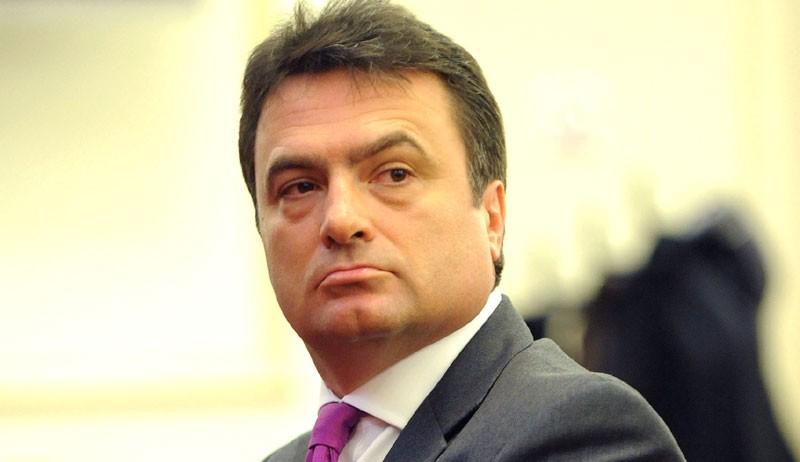
In addition to the absence of legal grounds for the establishment of jurisdiction and application of inadequate law, the defense attorneys have complained about the lack of conditions for fair trial. According to the allegations stated by defense, Darko Šarić cannot have fair trial in Serbia because he has been convicted in advance and found guilty. At the same time it was indicated that there was almost no important representative of the executive authorities who failed to contribute to the public defamation and demonization of Šarić, which resulted in unequal treatment of the parties to the procedure which was indicated both in writing and during the hearings. According to these objections, the defense attorneys were subject to wiretapping and other surveillance which prevented their undisturbed work and provision of defense. The defense attorneys requested that, in order to provide free work to the defense, the European standards should be respected and they sent a proposal to the Trial Chamber that a report should be obtained from the competent authorities regarding whether the defense attorneys in the subject case had been monitored, wiretapped or otherwise subject to surveillance in connection with this case.
The document states the objections regarding the violation of presumption of innocence, which has been replaced in the media campaign by a presumption of guilt. “The essence of the indictment against Darko Šarić is a combination of the presumption of guilt, imposition of inquisitorial justice and implication that anything unclear and unknown, but forbidden, represents the product of activities of Darko Šarić. Negative media campaign has been conducted, politicians condemned people in advance, and neither the Prosecution nor the courts reacted with regard to the violation of presumption of innocence. For all the above, the proposal has been made that the Chamber should address the competent authorities with a request that they should comply with the presumption of innocence, that they should not condemn in advance and that they should not give qualifications such as “drug dealer”, “mafia boss”, “threat to the country” and such like, thus enabling the right to a fair trial in relation to Darko Šarić”, reads the document.
As evidence for stated claims, the defense submitted to the court a large number of texts with statements given by the representatives of the state which contained the assertion that Darko Šarić was guilty. On this occasion, the Court was delivered more than 280 texts and statements given by the representatives of the authorities who convicted Darko Šarić in advance. In parallel with that evidence, the defense submitted a few charges against the State of Serbia for violating the presumption of innocence of their client. At the same time the attorneys-at-law filed a complaint for defamation against an unnamed member of the National Security Council who claimed that Darko Šarić organized protests and Genoa and in the streets of Belgrade.
A part of the campaign was the shaping of public opinion about Šarić as a negative figure for which reason there were repeated reactions during the trials. As an example, the objection has been stated regarding the articles published in “Blic” in an issue dated 22nd September 2010 when the front page of that newspaper published the announcement for a text under the headline “Šarić selfish and insensitive”. The defense protested due to the attitude of the Court on 12th January 2011 that the media correctly reported about the trial. The objections were stated regarding the statement made by the Ministry of Justice Snežana Malović which suggested that Darko Šarić was threatening the assigned prosecutor and cooperating witness Nebojša Joksović. The attention of the Court was at the same time drawn to the unacceptable practice that the statements of cooperating witnesses are published in the media although the public had been excluded from the trial at their request.
As for the media demonization of their client and the violation of the presumption of innocence, Šarić’s defense asked the Court to request that the Government of Serbia should provide a letter which Jelko Kacin, Special Rapporteur of the European Parliament for Serbia, sent to the Serbian authorities in Belgrade on 19th October 2010 in which he warned that there was a violation of the presumption of innocence in the Serbian media which created the atmosphere of lynch against some of the defendants in the processes with great publicity. At the time of writing of that letter, the indictment against Šarić was one of the most represented in the media.
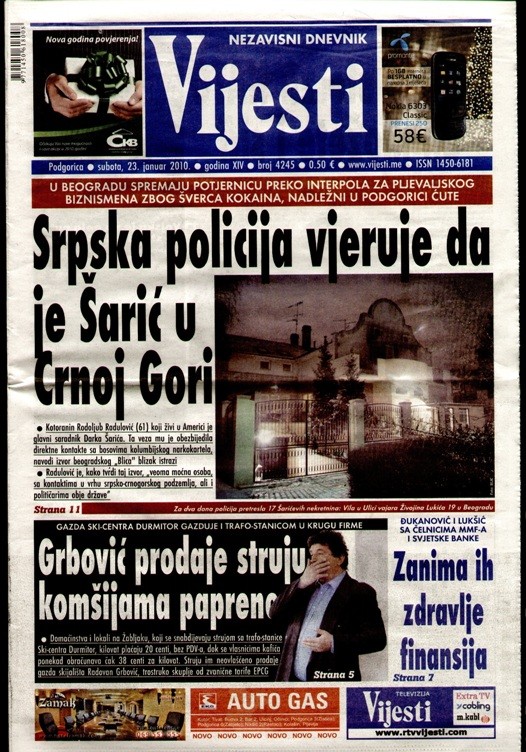
A part of the objections concerned the actions of the Prosecutor’s Office where the defense objected to the lack of objectivity towards Šarić. The Prosecutor’s Office, according to those allegations, first made the construction with which they wanted to forcefully apply to Darko Šarić the law which was less favorable to the accused and which was not valid at the time when the criminal offence was allegedly committed. During the investigation and during the court proceedings, the Prosecution was hiding information and evidence in favor of the accused, and finally used the inequality of the parties in the procedure and with the help of the political and media campaign, imposed the message to the public that all the accused in the case were undoubtedly guilty even before the court issued the final judgment.
The conditions for a fair trial were violated by the decision of the Prosecutor’s Office not to submit to the defense all evidence related to the case. The analysis of the procedural material obtained by the defense attorneys in a variety of ways indicated that the defense did not have all orders for wiretapping and surveillance, or the data on the term of duration of wiretapping of Darko Šarić, which is relevant for assessing the legality of thus collected material. An example of concealment of significant documents, data and information from the defense is the aforementioned court order dated June 2010 on the joining of a part of conversations marked as “state secret”. According to that order, the designated documents were listed and put in a special registry on 26th June. The BIA, however, submitted to the Judge Dragan Lazarević 107 pages of transcript on 26th August, which were, without a trace in the file, placed in a separate registry contrary to the judicial procedure. A similar example applies to the expertise performed for the accused Željko Vujanović, which has been used as evidence although that expertise could be found nowhere in the judicial records. One of the absurdities noted related to the statements of cooperating witnesses who the defense was not timely informed about. Thus, for example, a couple of days before the main hearing, the plan of work was included within the case file which indicated the “hearing of the accused Vuković” with no designations whether he was a cooperating witness or not. During the hearing itself, it was subsequently discovered that the person who surrendered on 11th October 2011 had come to the Prosecutor’s Office nine times, but the status of that person could be found nowhere. A similar style of concealment was implemented with regard to the wiretapping of conversations. The defense requested that they should be given insight into the originals of orders based on which the wiretapping had been conducted. The defense pointed at the data that Darko Šarić had been subject to wiretapping since 23rd June 2008, and the case file did not contain a single recorded conversation in the period of six months, while the Prosecution claimed that “it could be determined based on the contents of the telephone conversations that Darko Šarić organized a criminal group”. For that reason it was requested that all conversations of Darko Šarić recorded through the application of the measures of surveillance, should be included in the case file, and should be submitted to defense for inspection, but the conversations obtained upon the order 459-08 could not be found in the case file, but only the conversations obtained through the application of measures “Maroder 36” based on the order 09-09.
Pointing to the illegality of information from which the evidence and illegal obtaining of evidence was derived, the defense stated that all the data and evidence collected in this case were the result of illegal procedures of investigative authorities. It was reiterated on that occasion that there was evidence that Darko Šarić’s conversations had been wiretapped for a couple of years, although no legal, constitutional or international regulation provides that any person’s conversations could be wiretapped beyond the legally prescribed deadline, which is no longer than 12 months according to the Serbian legislation. This illegal wiretapping of conversations provided information and evidence which the Prosecution proposed to be presented, but the case law suggests that the evidence arising on the basis of illegally obtained information is also illegal and could not be used as evidence in the proceedings. For that reason the trial chamber has already been sent the proposal that all information on interception and monitoring of Darko Šarić should be requested from the BIA and the Ministry of Internal Affairs.
The objections also indicated certain discrepancies in the subject case files which cast doubts in the legality of conduct of the Prosecutor’s Office and the investigative authorities. First there was evidence that Šarić’s conversations had been wiretapped since June 2008 and the last time in October 2009 – therefore for full 15 months, while those of another accused in the case were wiretapped for much longer. After the defense attorneys had sent the complaint against the BIA to the Commissioner for Information of Public Importance, the evidence was obtained that Darko Šarić’s conversations had been wiretapped for much longer, and the last time after the indictment. The analysis of the case files determined that Darko Šarić’s conversations had been intercepted upon five orders, all that by violation of all legal regulations:
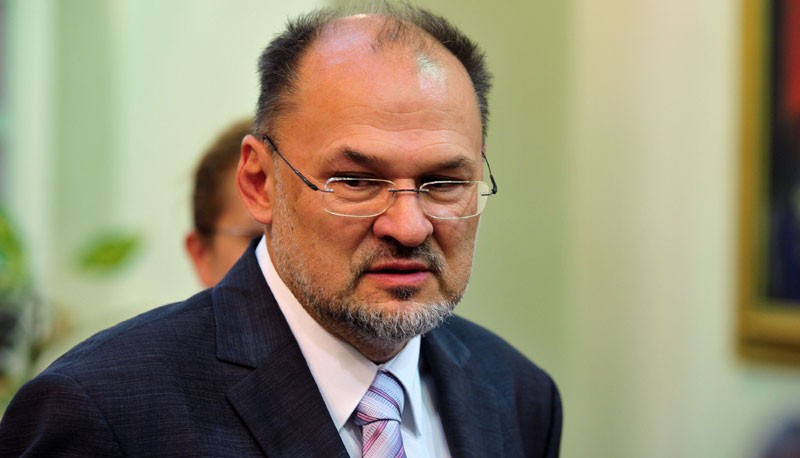
- The first order K No.459/08, in effect since 23rd June 2008 ending with 23rd June 2009.
- The second order, which was disclosed only after the BIA had been reported to the Commissioner, that Šarić’s conversations had been wiretapped upon the order number 570/09 dated 14th October 2010, therefore in the period when the indictment against him had been filed and in the period when the trial had already begun. That information was stated by the defense as the additional reason for obtaining a report from the top officials of the Ministry of Internal Affairs and the BIA on the meeting between Dragan Dudić Fric and the leaders of the Serbian prosecution, not only because Dudić, for whom the arrest warrant had been issued and who was determined custody, was then in the territory of the Republic of Serbia with its prosecution authorities, and because he was only later declared as the organizer, but primarily in order to determine the contents of the telephone conversations between Dudić and Darko Šarić and other persons, precisely in the period which was included within the order from the BIA report.
- The third order, Kri. pov. No. 09/09 dated 12th January confirms that the wiretapping of Darko Šarić’s conversations was illegal due to its duration because each order relates to the same criminal offense, to the same person and to the same circumstances and the same factual description of activities, only in different periods.
- The fourth order Kri. pov. No. 113/09 dated 14th February 2009
- The fifth order Kri. pov. No. P 197/09 dated 1st April 2009.
In addition to the above five orders there is a BIA document dated 20th May 2007 which stated that Darko Šarić’s conversations had been intercepted since 2007. In addition to that, there is another document dated September 2005 which stated that a group already existed at that time. The defense emphasized that it was very important from the factual, not only from the legal point of view, whether the group was formed in 2005 or in 2006 because that data had been obtained by wiretapping which was a proof that Darko Šarić had been illegally wiretapped for many years and the court should establish the limit which the Prosecutor’s Office and the prosecuting authorities would not be allowed to cross, as the Slovenian court said that they could not work with unlawfully obtained evidence.
The material obtained from the BIA confirms that the Agency and the Ministry of Internal Affairs of Serbia had some knowledge of the alleged organized criminal group of Darko Šarić, with the identical description that the drugs were obtained in Latin America and were further transferred to Europe and that it had been functioning since 2004. For this reason the defense proposed that the Security and Information Agency should be ordered to submit all reports from the years 2003, 2004, 2005, 2006, 2007 and 2008, which clearly state whether the state and the prosecution authorities have had information about this group since 2003 and 2004 and also whether Darko Šarić’s conversations have been wiretapped since that period.
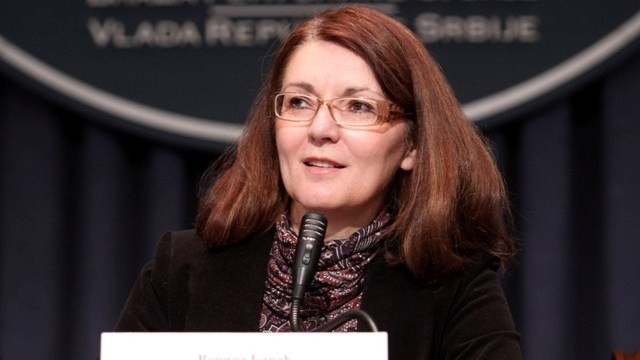
The defense asked that the Court should request that the BIA should obtain all the information about since when Darko Šarić had been wiretapped and on the basis of what former and subsequent orders had the wiretapping been performed. There is a report in the Slovenian case that the group has operated since 2003, where the place of establishment is the same, persons are identical, style of work is identical, criminal offense is identical, and if the State has been wiretapping those people since 2003, then the Prosecution cannot hide behind the attitude that the prosecuting authorities have right to wiretap the suspects several times, whenever they perform criminal offences , because these are the same legal and factual grounds on the basis of which the wiretapping is performed. The Prosecution had legally determined period in which they could use the data, as well as the obligation to accuse someone within that deadline or to drop charges.
Therefore, the defense proposed that the Court should exclude from the case file the conversations under the orders, because the conversations could not have been submitted to the court as a case file bearing in mind the provisions of Article 504-n of this Code, that all collected evidence shall be destroyed whereby the application of the measures shall be notified to the interested party to which the data concerned relate to. Darko Šarić has never been notified of the application of such measures, or destroyed and that is the grounds why the decision on exclusion should be adopted.
The document indicates that the Prosecution, with the permission of the Trial Chamber, uses the information and facts obtained through the violation of the Law on the Criminal Proceedings (LCP) and positive regulations of Serbia and the international law. The Prosecution may not use the information and data which the defense has timely disputed and to which the objection has been filed. The Chamber must prevent and must not allow anyone to answer the questions based on such information, because that undermines the procedural role of the defense and the efforts to draw attention to the fact that the court files, materials used for asking questions, can only contain the information collected in a way which is in accordance with this law.
Illegally wiretapped conversations
Analyzing the grounds and contents of wiretapped conversations of their client, Šarić’s defense has established that it is a textbook example of illegal wiretapping because no citizen can be wiretapped for more than 12 months, and Darko Šarić has been wiretapped for at least 15 months. For that reason the defense proposed that all cases against Darko Šarić should be reviewed in order to establish that the was wiretapped in 2007, 2008, 2009 and 2010.
At the same time, the defense asked that the court should request that the BIA and the Criminal Police Directorate should obtain all the evidence and information which failed to exist in the court file, and those are at the same time suggesting evidence for that court, and that is to determine: Who wiretapped Darko Šarić? Who entered remarks that the conversations were held in the Serbian language? Who transcribed the conversations, when were they wiretapped and who were they submitted to?
The court was requested to submit to the defense the orders on the basis of which the conversations of the accused had been wiretapped. In this regard, the attention has been drawn that the orders of the District Court issued in 2009 by the investigating judge, bear the seal of the Higher Court in Belgrade. The problem is, however, that the Higher Court did not exist at that time, but it was formed after the unsuccessful reform of the judiciary system and it began its operation in January 2010. The orders for wiretapping bearing the seal of the court which was established after that, cast reasonable doubt that the orders were obtained subsequently, which means that Šarić was wiretapped at that time without the valid legal grounds, or in an unlawful manner. After examining the court records, the defense has established that there are more than 80 orders for wiretapping which had the seal of the court from the future, which precluded any possibility of omission or mistake. In addition to the seal, those orders bear the designation Pov. Po1 which were introduced into the Serbian legislation only in January 2010.
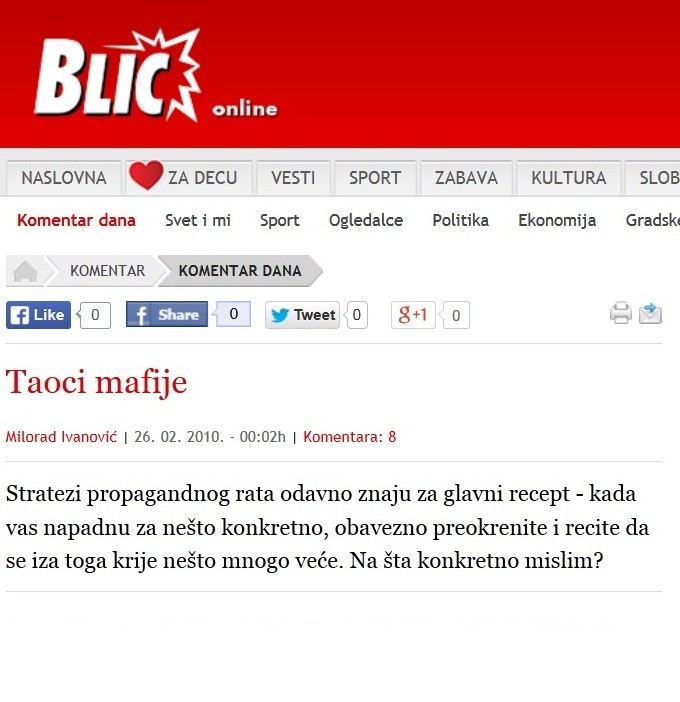
The defense requested the exclusion of the minutes which bear the designation “conversations held in the Serbian language” which indicates that the defendants have been wiretapped by foreign services although it has never been specified in the case file or substantiated by adequate legal coverage. For that reason it has been proposed that the conversations received from Italy should be excluded from evidence material. It has also been indicated that the Prosecution, as a part of evidence, proposed a part of conversations wiretapped by the Serbian authorities, and a part of conversations obtained on a request, but the case file fails to contain a single order for wiretapping in Serbia (case Italy). The Italian court did not use those conversations as evidence, but it did not even rely on the information obtained from those conversations which could be seen in the judgment passed in Italy. The problem with conversations obtained upon a request from Italy also lies in the fact that it cannot be seen in the order from Italy whether they relate to organized crime or not. These conversations include the conversations between Borislav Tunjić and Boško Nedić, although the two of them have not been accused in Italy nor have their names appeared in the judgment passed by th Italian court. Also, the request sent to Italy fails to mention Tunjićand Nedić for which reason the prosecutor could not have used those conversations as evidence material.
After examining the call interception orders from Italy, the defense has determined that they could not be used in the national procedural criminal law because they fail to meet the conditions that they have been collected in accordance with the Serbian laws. The orders from Italy represented a decision to convalidate the previous wiretapping and the observation which are not allowed according to the Serbian law. It was the wiretapping performed by the office for preliminary investigation and those conversations according to the Italian law can only be used at the level of information of the police and Prosecutor’s Office. According to the Serbian legislation, however, the conversations of persons who are not suspects may not be used. The law in Serbia, in Articles 232 and 504 of the LCP seeks grounds for suspicion that a crime has been committed in order to grant permission to wiretap a person. Also, no order from Italy is given for a name of a person but for a number, which is also not in accordance with the applicable laws of Serbia. According to the judgment passed by the Italian Court, persons who are claimed to be members of the organized group by the Serbian Prosecution, are not so from the perspective from the Italian judicial authorities.
Page 20 of the indictments neither lists the conversations concerning the communication via Bulgarian telephones, although nothing has been obtained through a letter rogatory from Bulgaria nor does the case list any evidence that the Prosecutor addressed the Bulgarian authorities. Those conversations are controversial because the Serbian authorities have no jurisdiction for call interception in the territory of Bulgaria.
After it has been established that on page 44 of the indictment the Prosecutor proposed the presentation of evidence from photographic documents from Uruguay, and that there is no letter rogatory, the defense asked that the prosecution should submit the missing document. The Prosecution submitted the letter rogatory dated 20th October 2010 which states that the proceedings have been instituted against Dragan Labudović, regardless of the fact that the request for the initiation of investigation against Labudović was issued two days later, on 22nd October. It is interesting that the documentation from Uruguay came already on 22nd October, although it is impossible in the procedure of international legal assistance to receive the requested material within the period of two days.
The issuance of a decision on exclusion was also requested or seeking of clarification about who performed the recording and transcription of wiretapped conversations. The BIA report states that all transcription and designations have been done subsequently, and that the BIA had no knowledge about who put the designation “state secret” which is contrary to the nomenclature used by the service. The designation “state secret” was introduced in the operation of the Agency only in January 2010, while that designation was used for marking the conversations from the year 2008! Due to these numerous controversies, the Court was asked to request from the Prosecution the submission of delivery books in order to determine when the materials on recorded conversations were submitted to the Prosecution. Also, the inspection of delivery books of the Court in order to determine when the proposals for determination of measures of supervision were submitted to the investigative judge who issued the orders for their application.
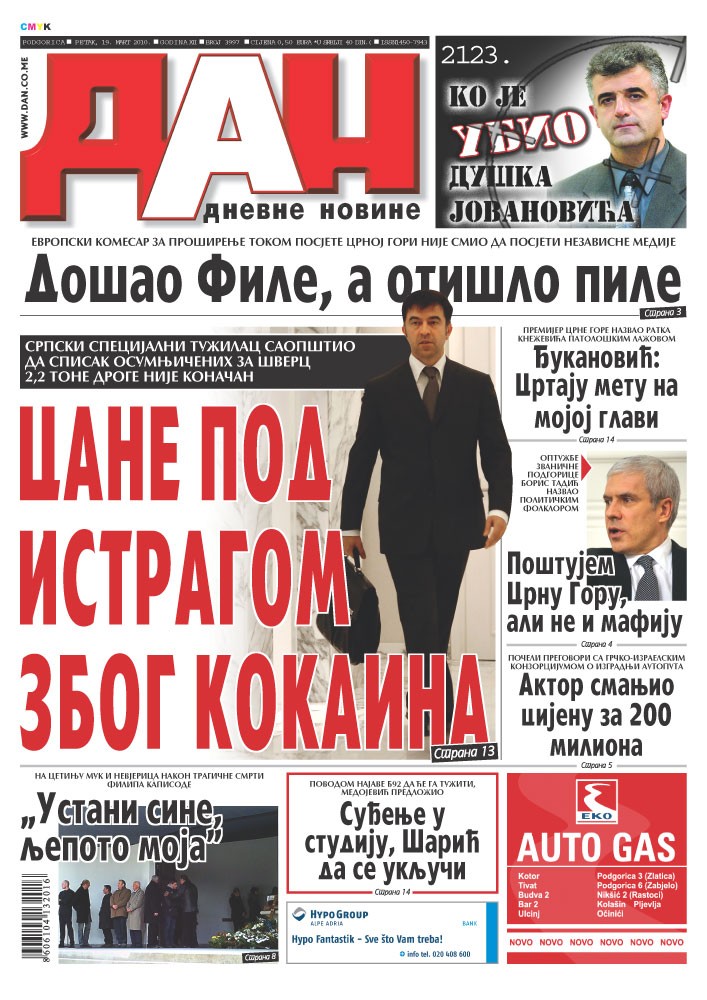
During the main trials the defense pointed to a letter of the Prosecution dated 12th August 2010 in which it has been proposed that the audio recordings with intercepted conversations of Darko Šarić made from 12th January to 11th July 2009 should be joined together. Given the fact that it has been claimed that the wiretapping of Darko Šarić started on 23rd June 2008, the Prosecution admits in its letter that he was being wiretapped for more than a year. Although the Prosecution claimed that the measure “maroder 36” had lasted for one day, it arises from the letter of Prosecution that there were recorded conversations to 11th July 2009.
After examining the materials obtained under the measure “maroder 36”, the defense has established that the list of conversations obtained under this measure includes 160 conversations outside the time limit to which this order, which lasted for a single day, relates. The conversations obtained according to this order and which are included in the document, started on 12th January 2009, and the last conversations was on 19th January 2009, therefore when there was no legal grounds for wiretapping, i.e. the order – the case documents contain the letters dated 21st September and 29th March, which mention this particular order.
The defense has requested that it should be allowed access to conversations not included within the case, which include the conversation between Darko Šarić and Bojan Stanojković which show that the two of them talked about going to “Zoki” which argues against the thesis stated by the prosecution that Darko Šarić is actually “Zoki” and that the “Zoki” has some kind of hierarchical relationship to other members of the group. That conversation speaks opposite of the claims raised by the Prosecution that Darko Šarić is “Zoki” and that conversation has been marked “state secret”.
As for the transcripts of recorded conversations, which the Prosecution uses as the key evidence in their charges brought against Darko Šarić, the defense filed to the Trial Chamber more than 90 proposals and objections for their exclusion from the evidence material. Due to the repulsive attitude of the Court towards their proposals, the attorneys-at-law of Darko Šarić filed an appeal to the Constitutional Court of Serbia on 12th May 2014 with a request to assess the constitutionality and legality of the applied measures of interception of conversations and that the unlawful transcripts should be excluded from the evidence material.
Commenting the intolerable arrogance of the Prosecution who ignored the existing legal framework during the investigation and preparation of indictment, the sources close to the defense state that it is a combination of arrogance and negligence to cover the arrogance with the relevant legal form, was conditioned primarily with the beliefs of the political mentors of the investigation that Darko Šarić would never surrender and that the politically controlled Trial Chamber would accept any argument offered by the Prosecutor. That kind of self-confidence was based on the knowledge that the prosecution authorities conducted the investigation upon the instructions of that center of political power which placed the judiciary system under its control after the so-called judiciary reform. Through the established channels of financial impact on the media, that center of political power held under the complete control the mechanisms for the creation of public opinion. What mostly clouded the calculations of thus established link between the executive political power and abuse-prone investigating and judicial authorities, was the unexpected election result of presidential elections in May 2012. The strategy of Prosecution was even more blurred by the surrender of Darko Šarić in March 2014 when a ball of abuse began to unfold.
Conclusion
Regardless of the indisputable criminal motive for the operation “Balkan Warrior”, five years after the operation there is no doubt that it has been turned into the case of political nature from its very beginning. It politicization became visible at the moment when “Balkan Warrior” grew into the “Case Šarić” with all implications that followed. Carefully observing the events which accompanied the investigation and the court proceedings of Darko Šarić, one can notice the existence of the abundance of evidence which confirms the doubts that it has been guided primarily by political reasons, and much less by legal logic. The imposition of political mentorship in the investigation, abuse of the case for the sake of political confrontations with the authorities in Montenegro, benevolent attitude of the Trial Court towards the unacceptable violations of legal procedure by the Prosecution, police and security services, inappropriate media campaign accompanied by unacceptable statements of officials of executive authorities were more than clear signs that the “Case Šarić” has been pushed out of the legal frameworks by the will of powerful politicians.

Although the importance of the fight against organized crime is nor and cannot be disputable, for the long-term success in this fight, more important than individual victories in the fight against one or two clans is to keep the fight strictly within the legal framework. For this reason, the superficial and often malicious comments of a part of the public which advocate for the tolerance of a certain degree of violation of legal procedures by the prosecuting authorities for the sake of success in the fight of the organized crime cannot be justified. The experience of countries that have for decades led the fight against this scourge of society, indicate that, regardless of the importance of breaking the Balkan drug cartel, it is more important to create the institutional base for a long-term eradication of all forms of crime, including the organized crime as the socially speaking more dangerous form of illegal activities. A key preconditions for success in this fight is the existence of independent, professional and credible prosecuting authorities and judicial institutions whose operation is entirely devoid of pressures and impacts of executive powers.
Although the link between the institutions of the executive authorities, police, security services, judiciary system and the media has significantly weakened since the elections of 2012 and the loss of stronghold in the political power, there is no doubt that it still exists at the lower levels. Besides the loss of political strongholds, that link has suffered serious blow after the dismissals in the head of the Security and Information Agency and the changes in the top of police in summer 2014. However, the link between the Special Prosecutor’s Office for Organized Crime, Police Directorate and the certain media continued to operate, toughly resisting any mention of investigation and examination of responsibility for numerous abuses which happened in the previous period. Without a thorough investigation, which would clear up the controversial events from the past and the introduction of the principle of responsibility into the work of judicial, prosecutorial and police services, it is hardly possible to imagine the building of the rule of the law and fulfillment of the European standards in that area.
Because of the evident weaknesses in the fight against organized crime and attempts to use the weakness of the institution for political abuses followed by the non-compliance with legal frameworks and procedures, Serbia would require fundamental reform of the judicial system and authorities in charge of investigation. That reform would not be possible in the existing organizational frameworks and with the existing management personnel. The development of a clear strategy and personnel selection are required preconditions for the implementation of thorough reforms without which Serbia would not be able to close the negotiating chapters with the EU concerning the rule of law and work of security services. A critical review of functioning of the entire system during the engagement in the case “Balkan Warrior” and later in the “Case Šarić” is an ideal opportunity to detect key weaknesses in the functioning of the system, so that they could be removed in the best possible way. As the functioning of the rule of law was at test during in “Case Šarić”, so will also be the willingness of the current Government in Serbia to in-depth reforms and rule of the law be at test during the evaluation process of responsibility in all segments of the relevant state authorities and expressed systemic weaknesses which were manifested in several key cases where the political imperatives prevailed over the legal standards.
